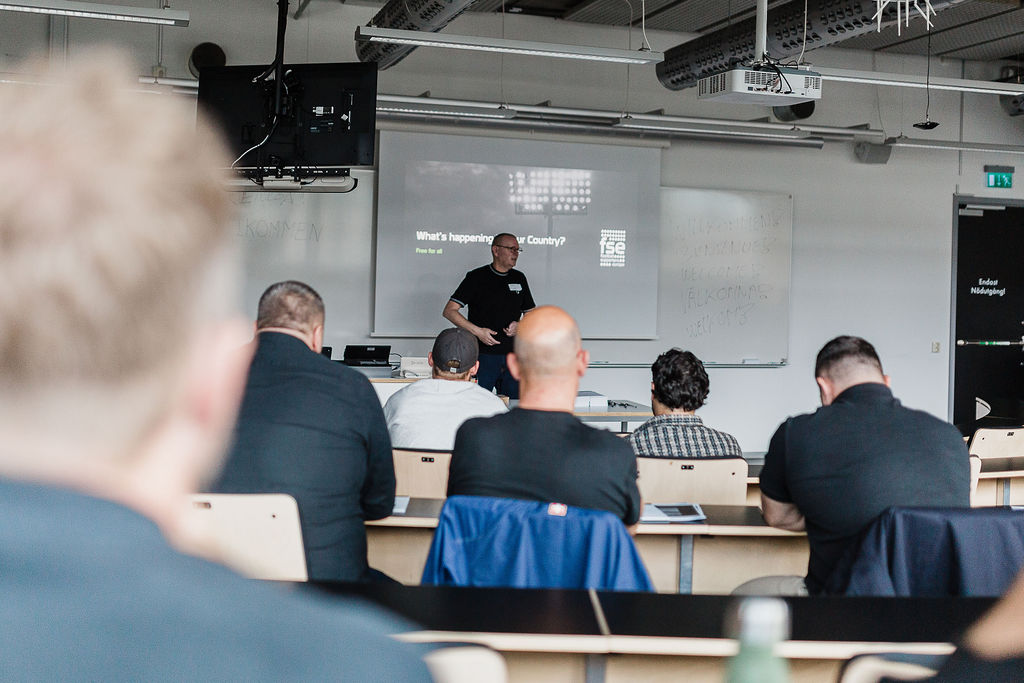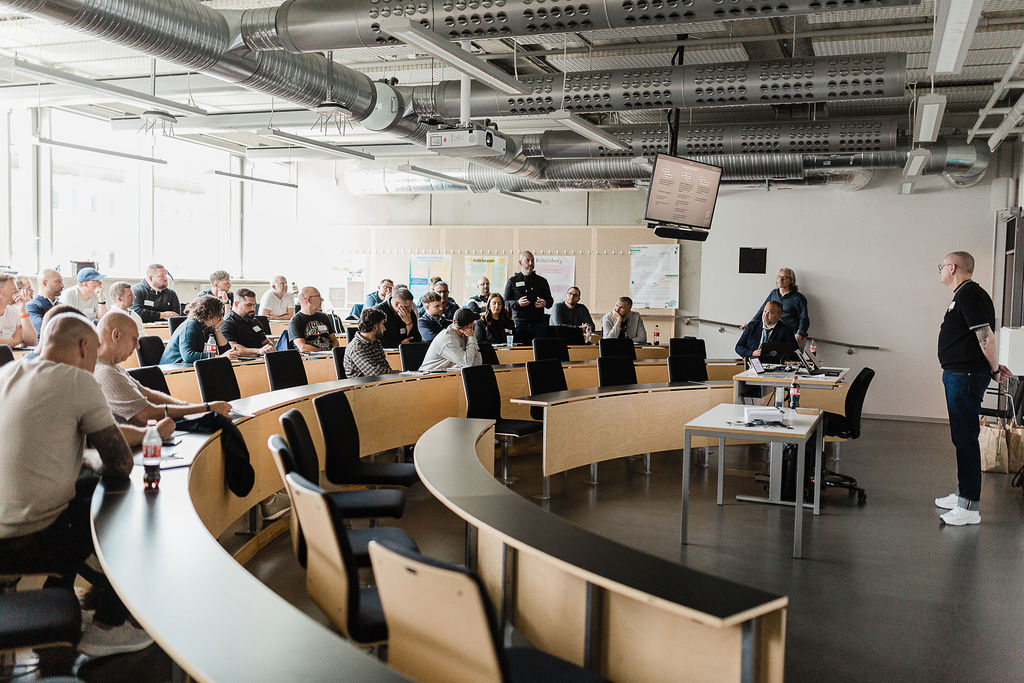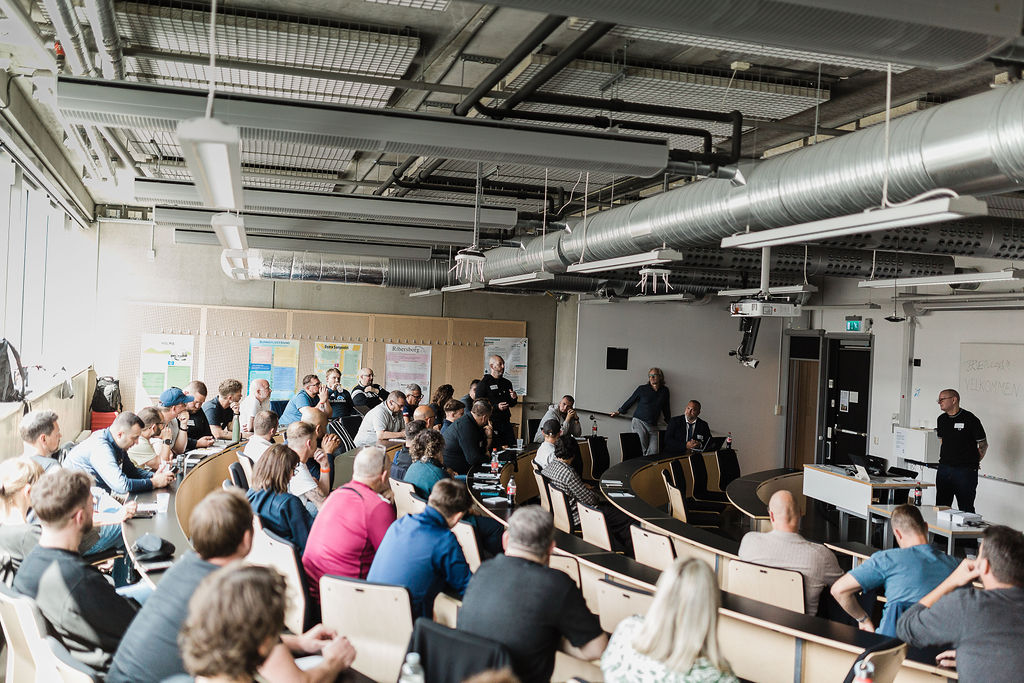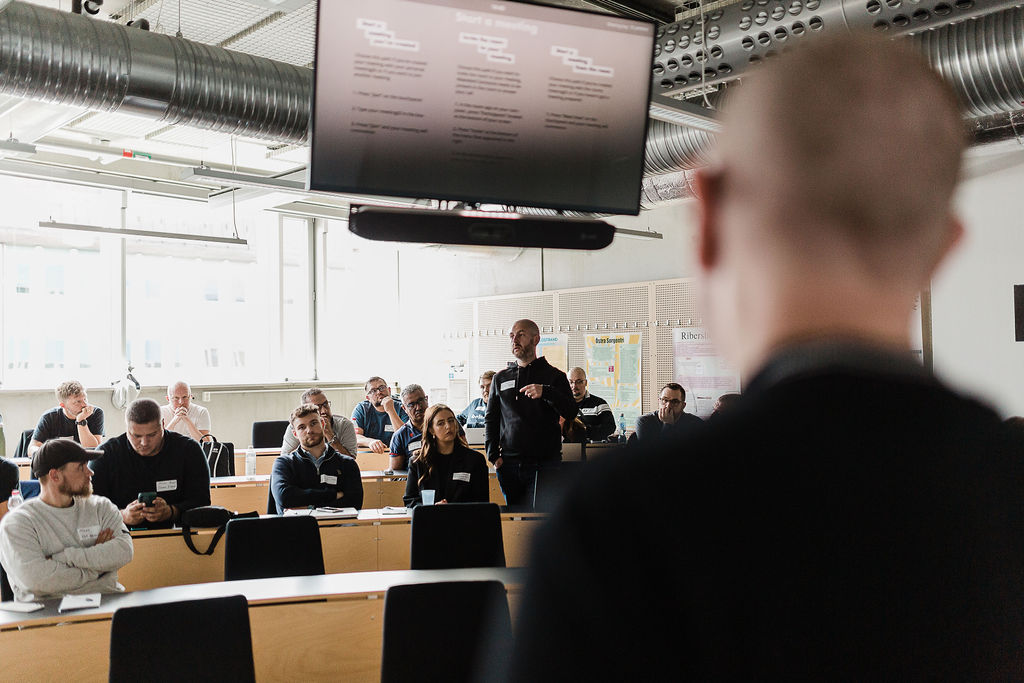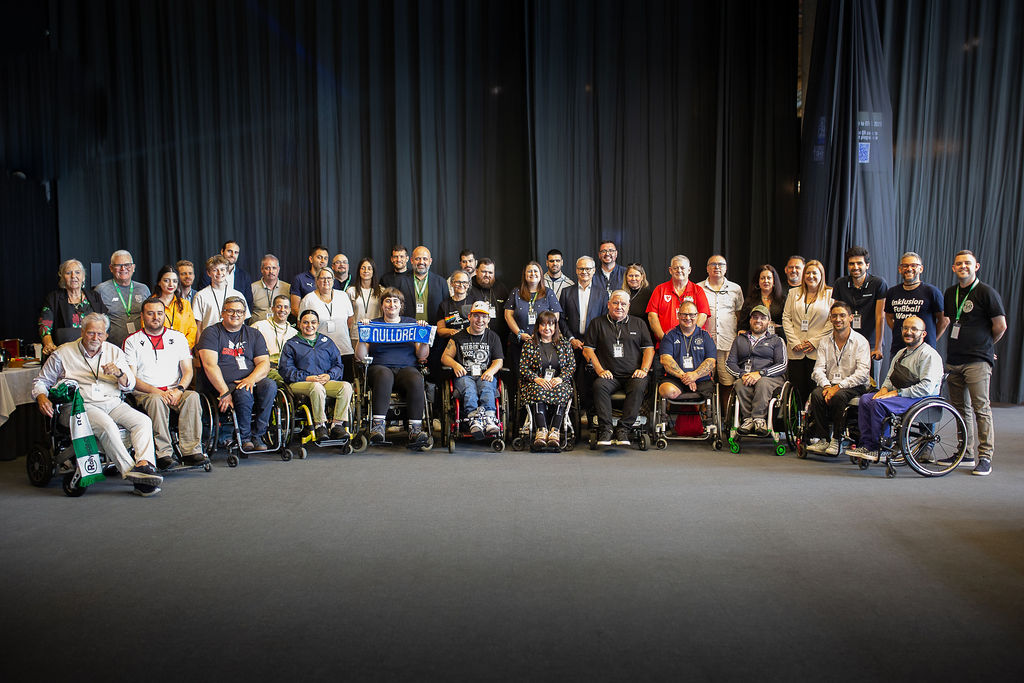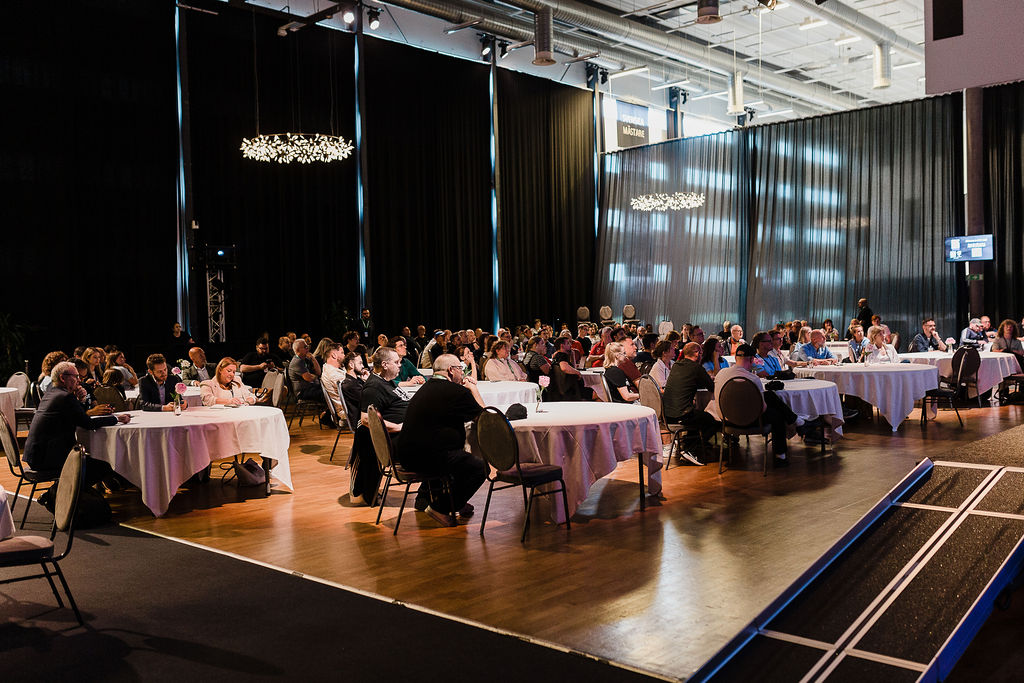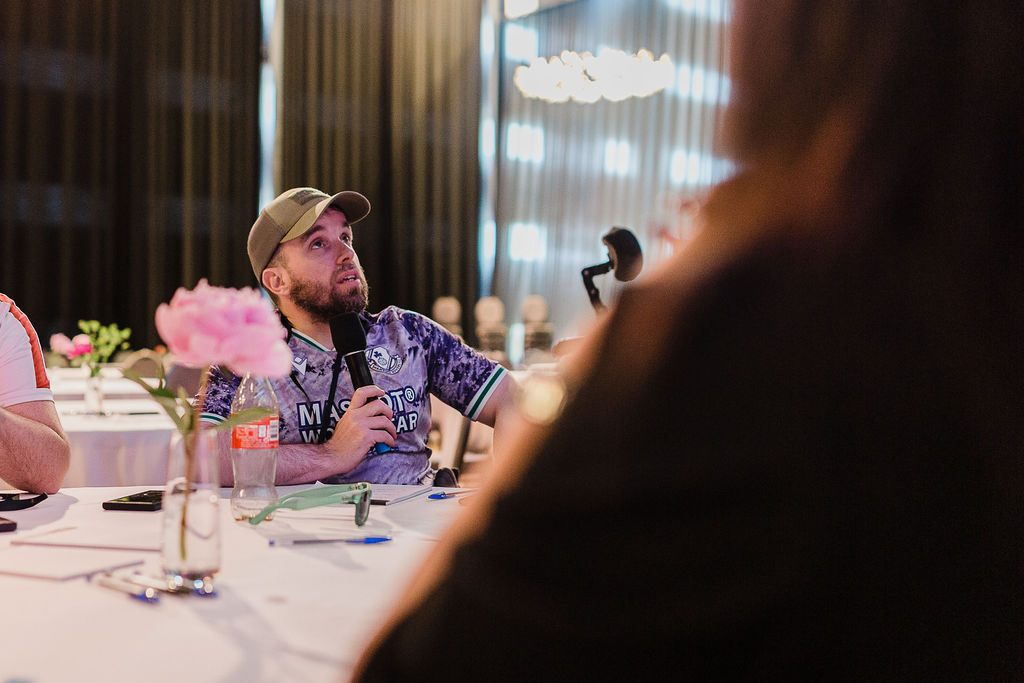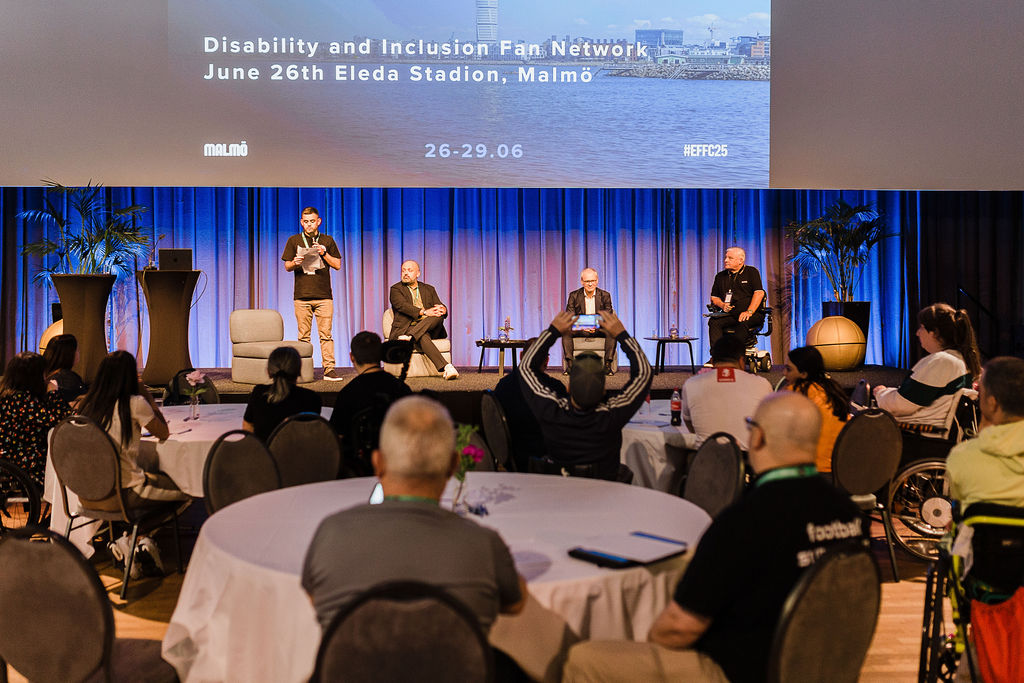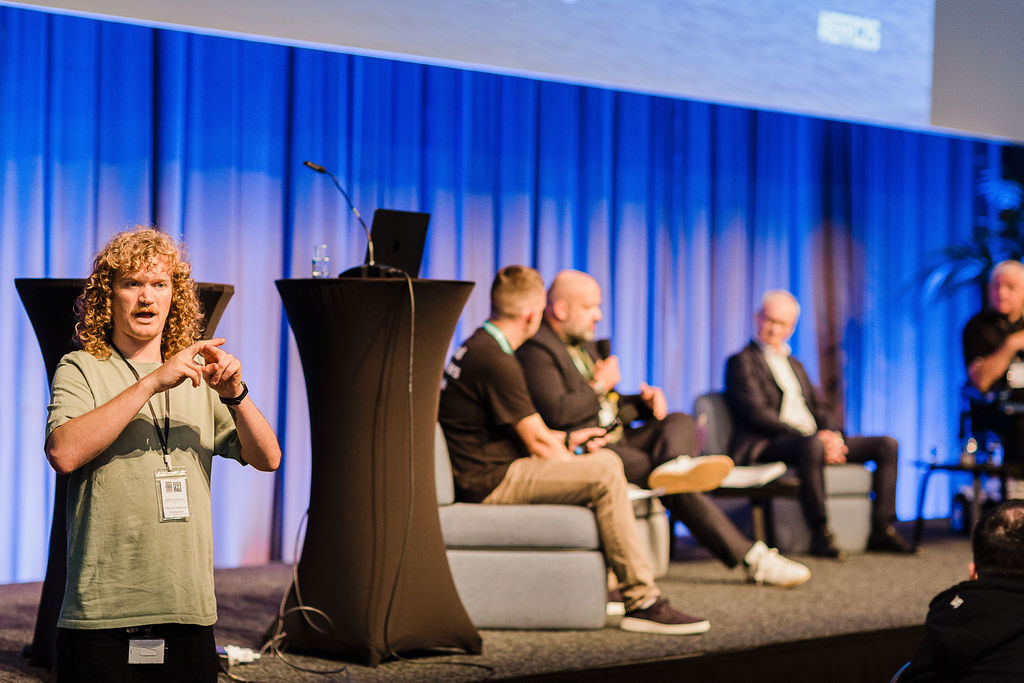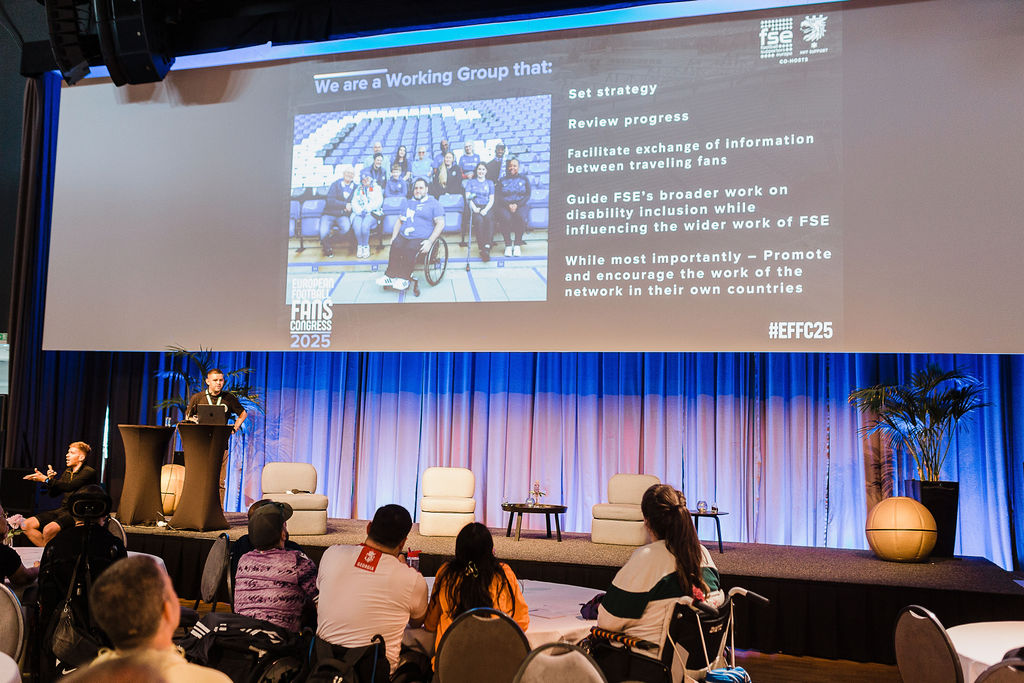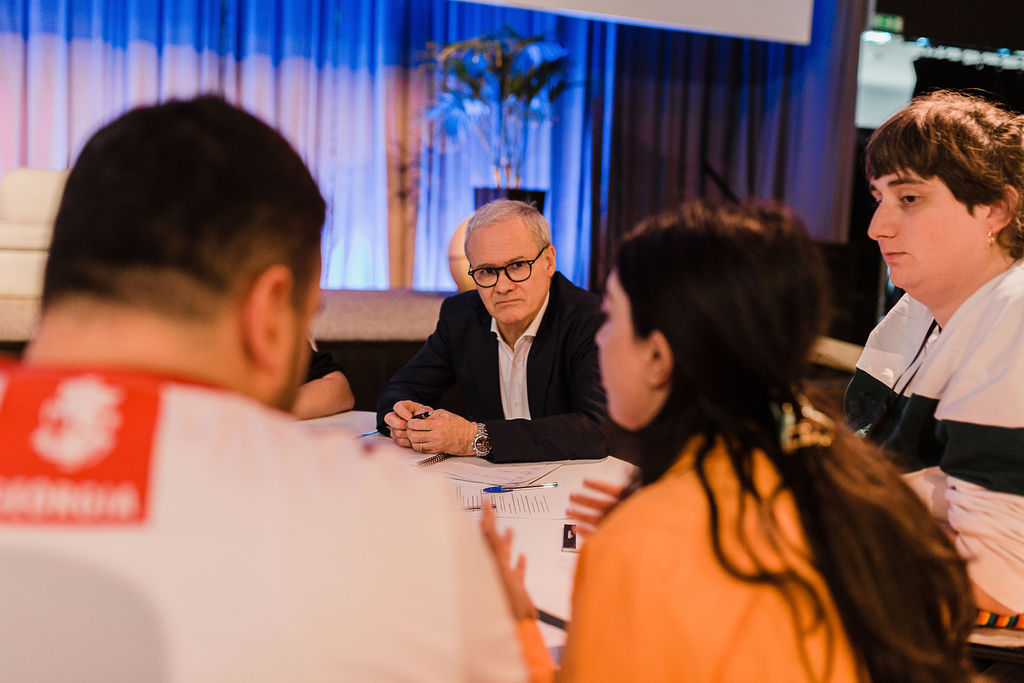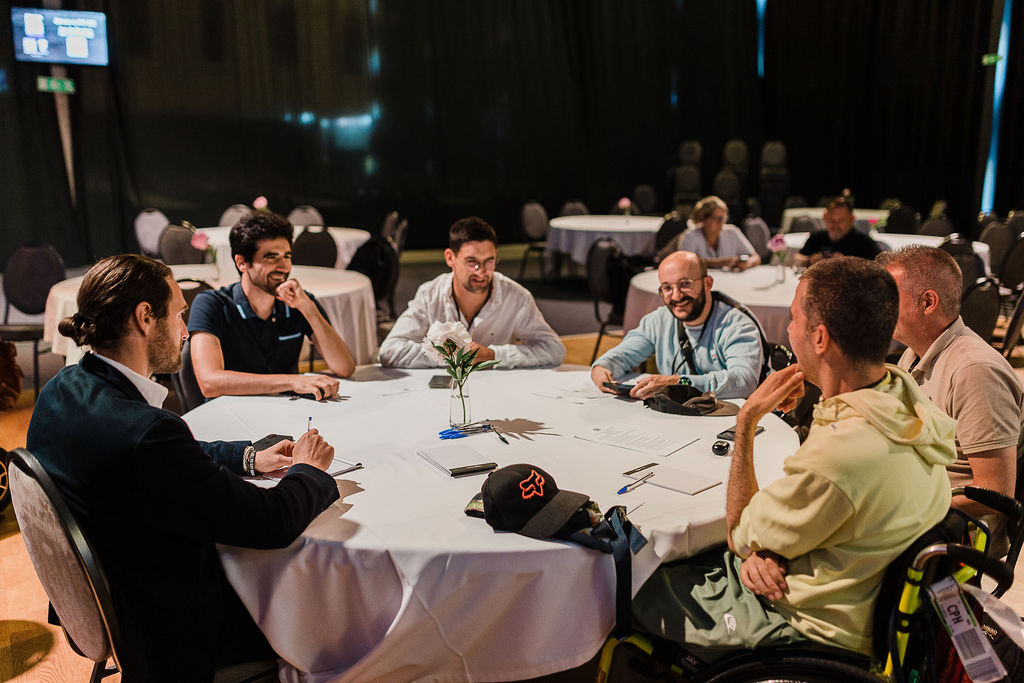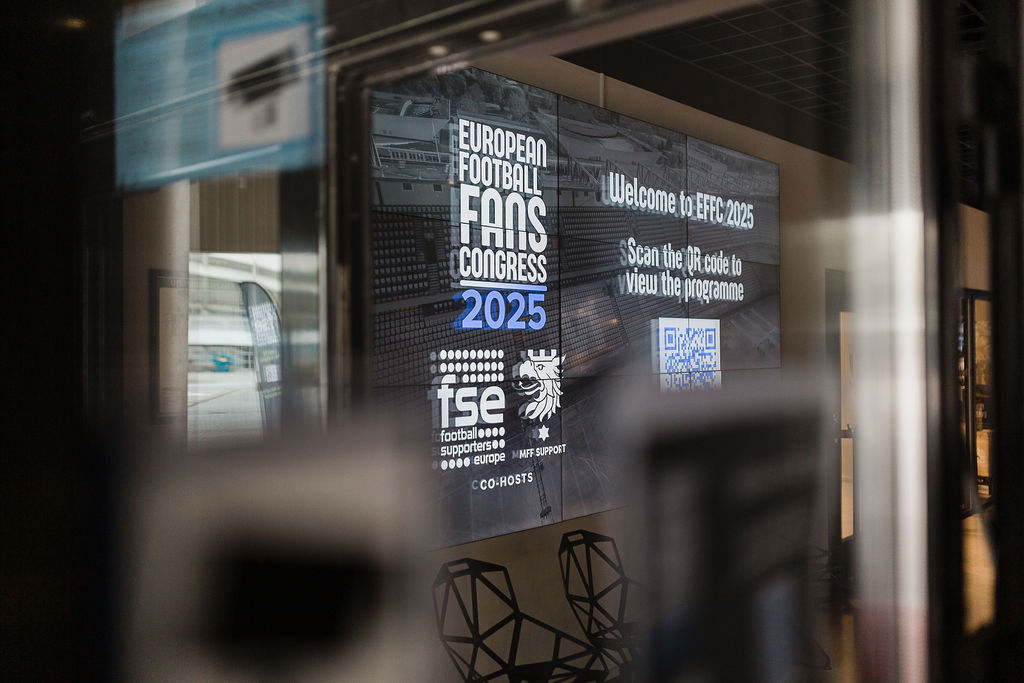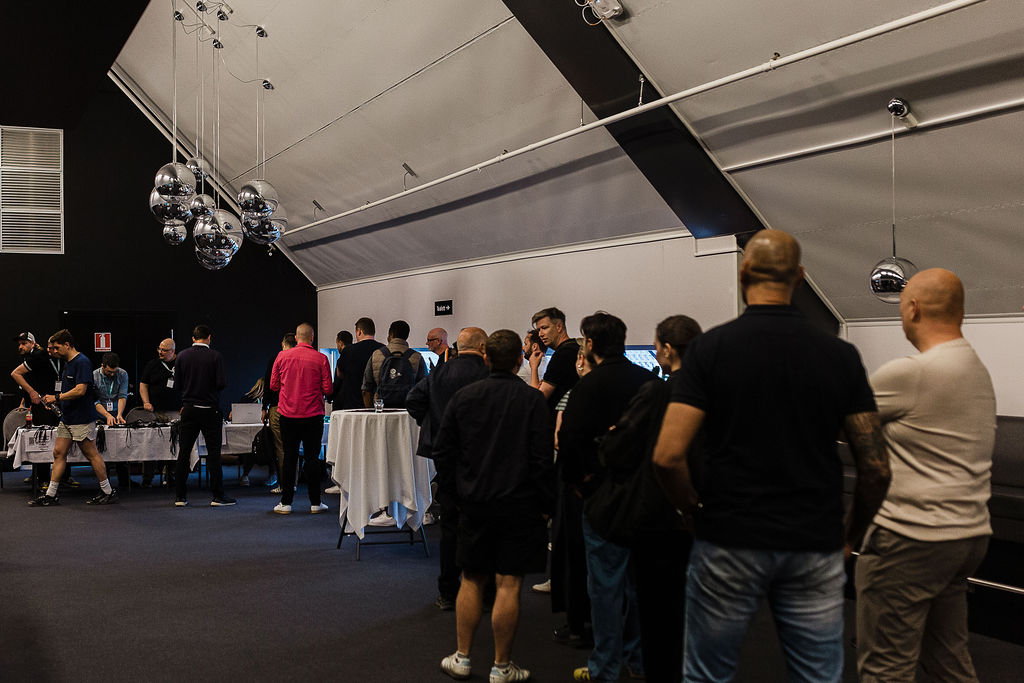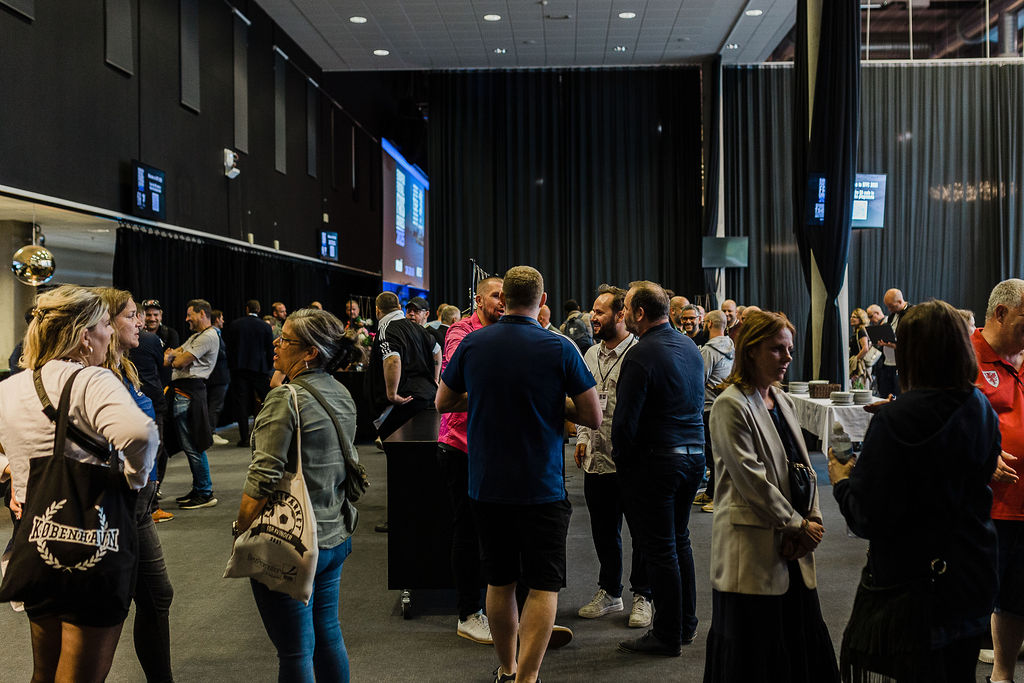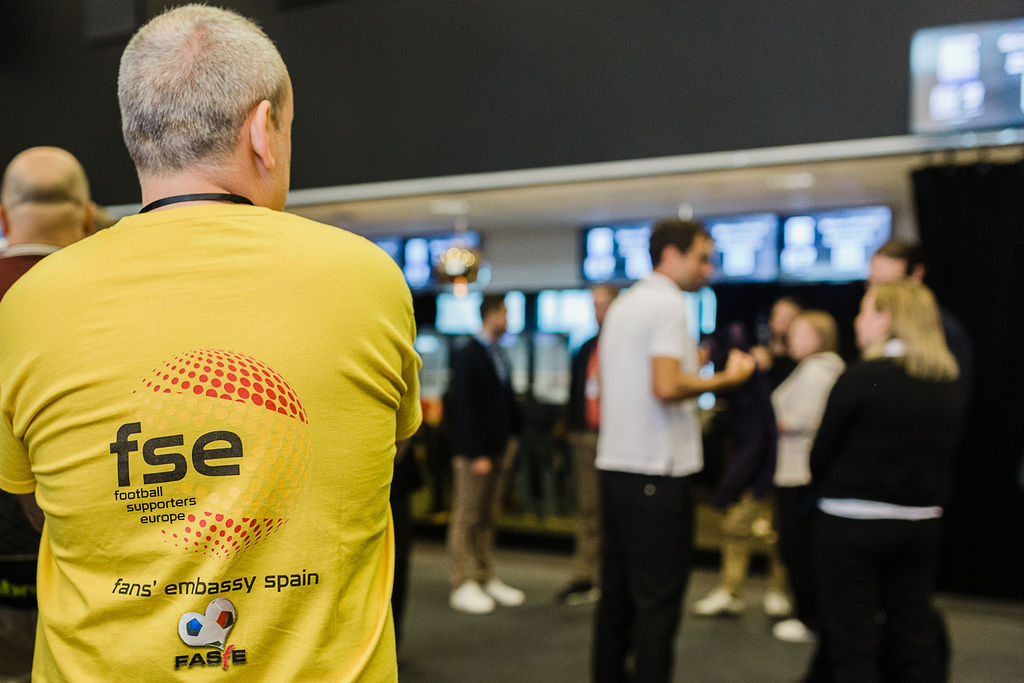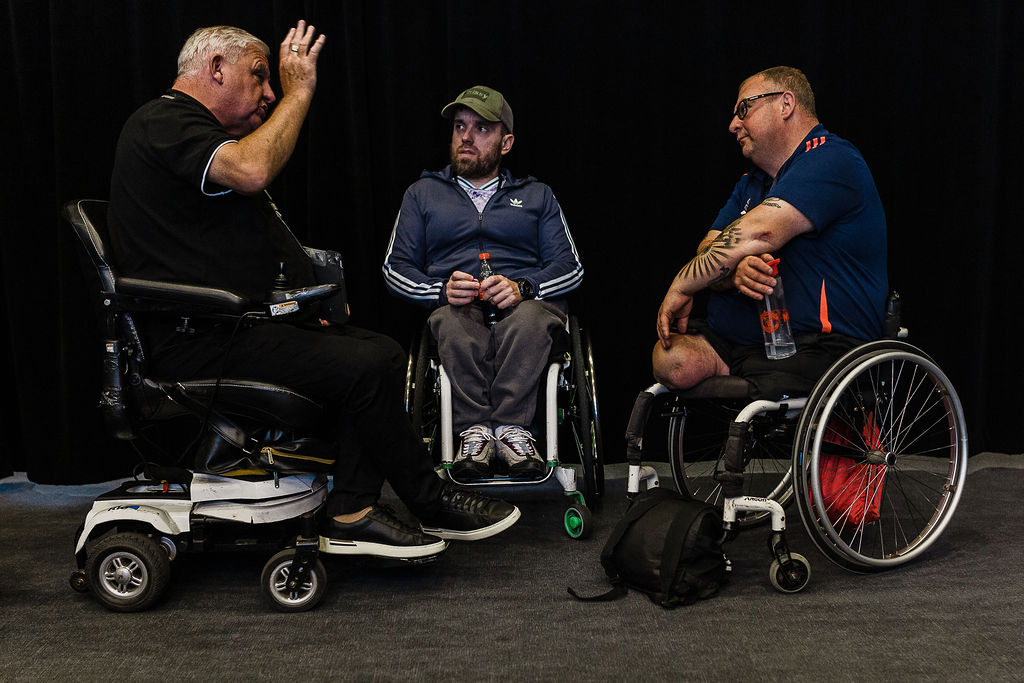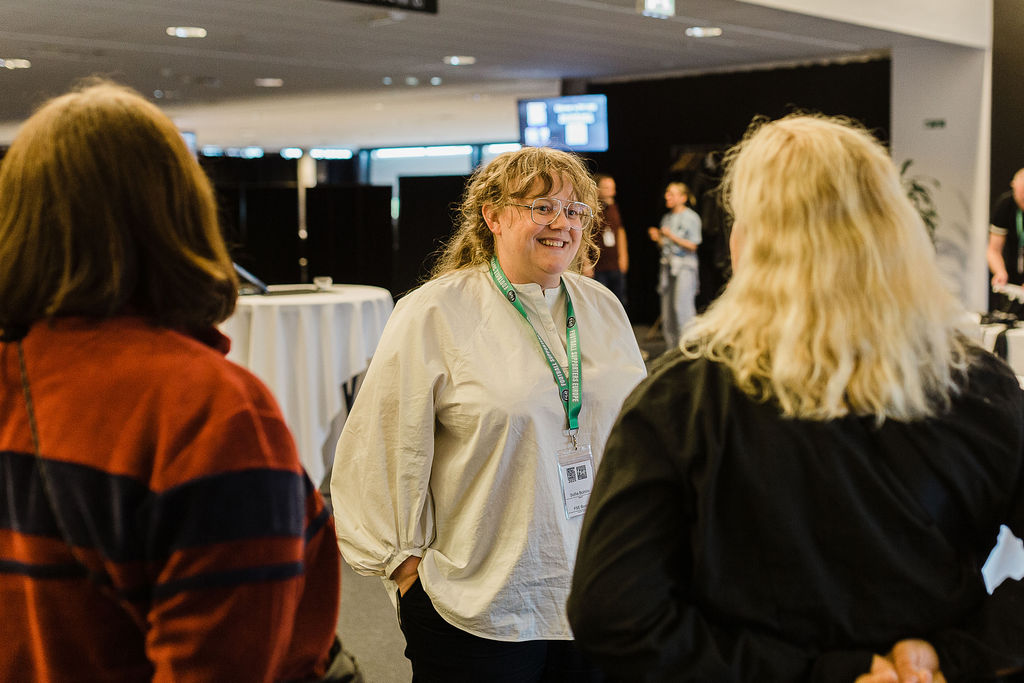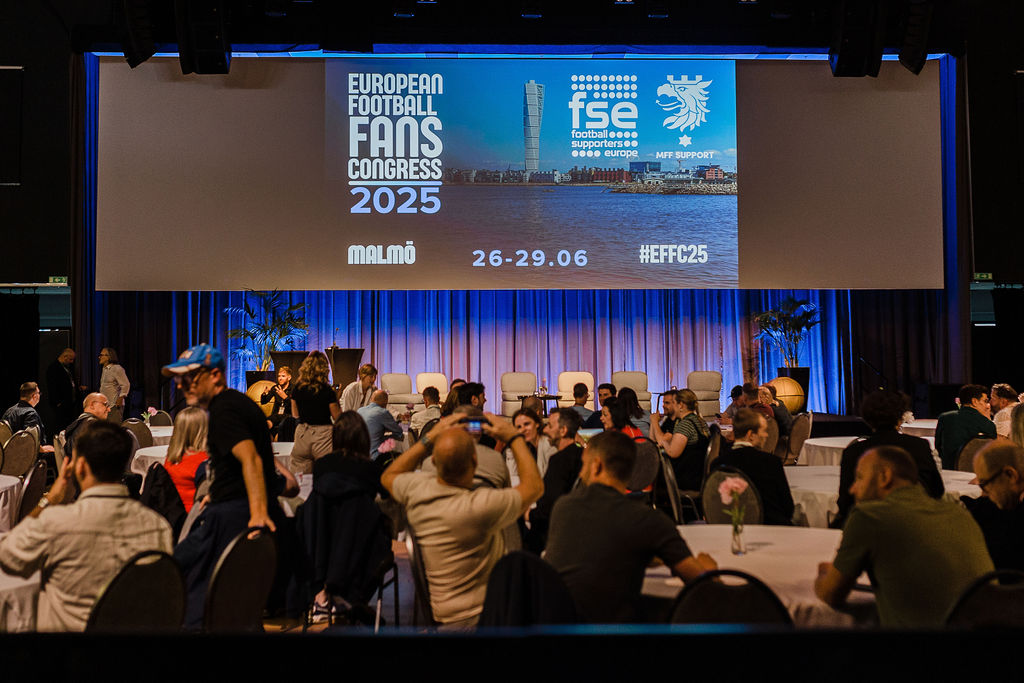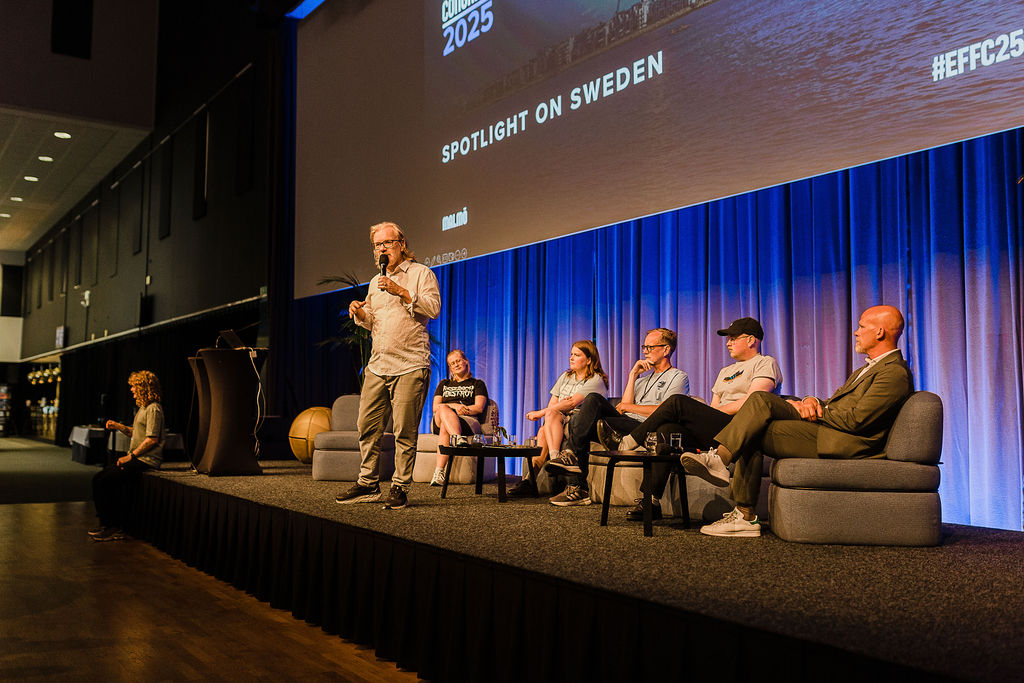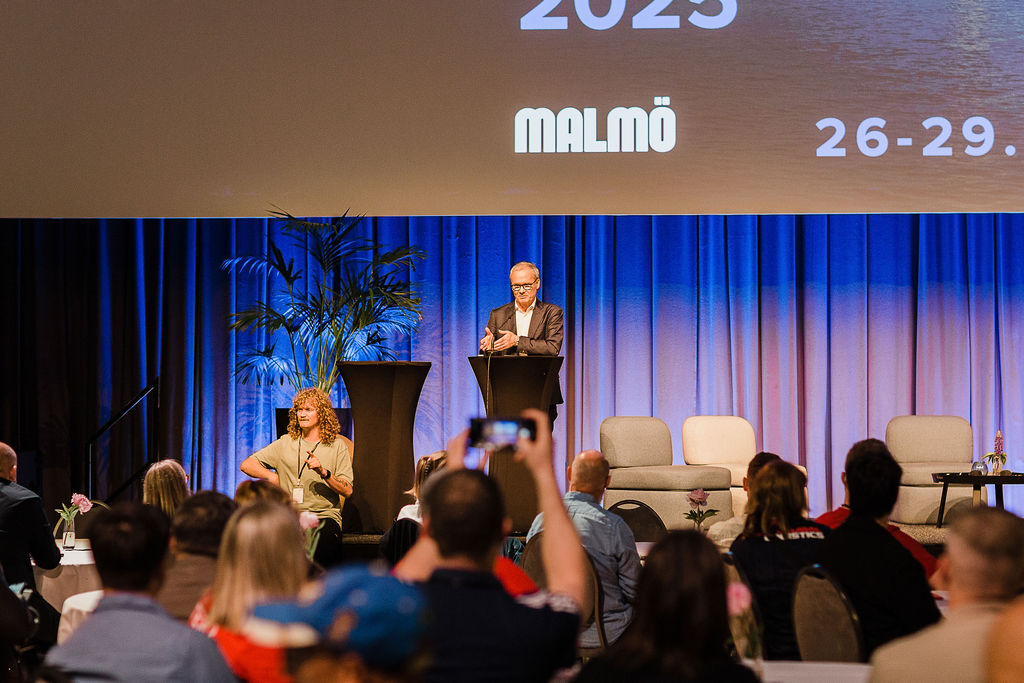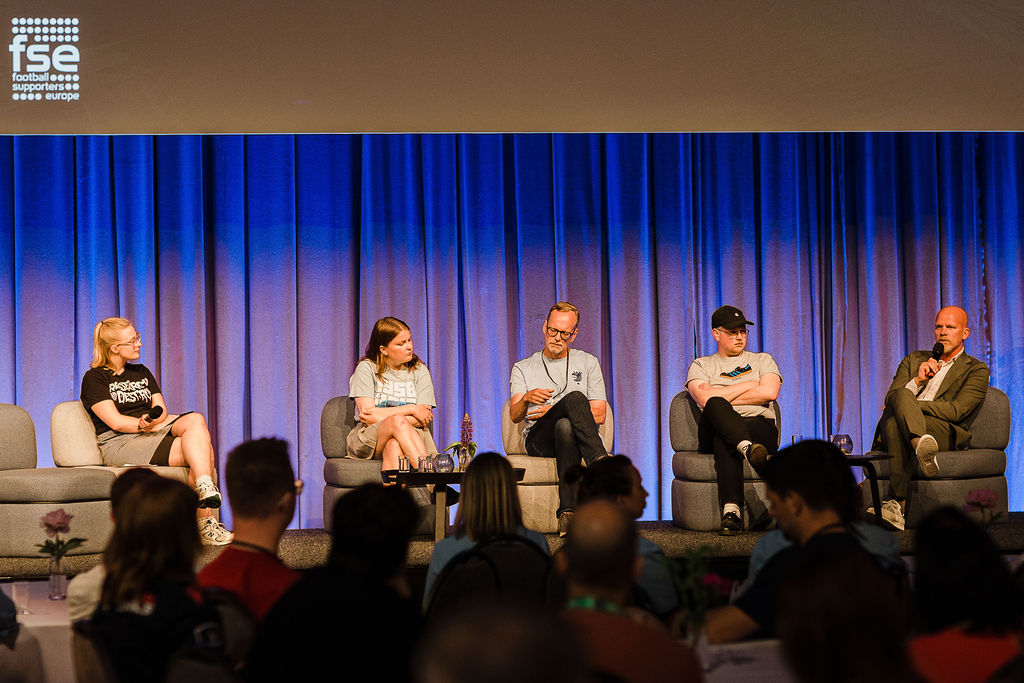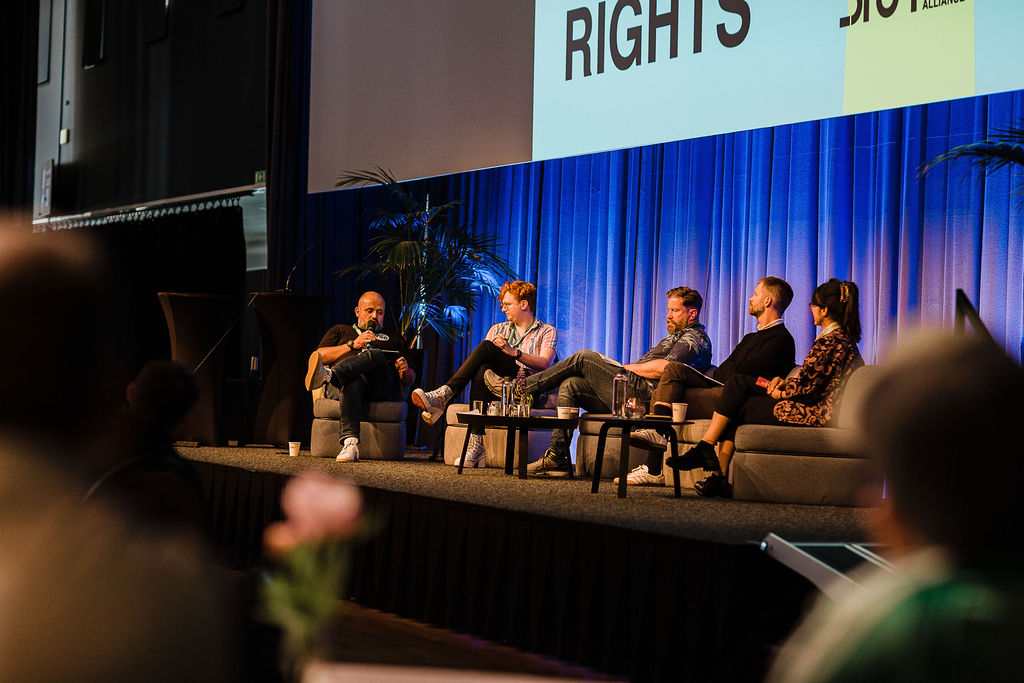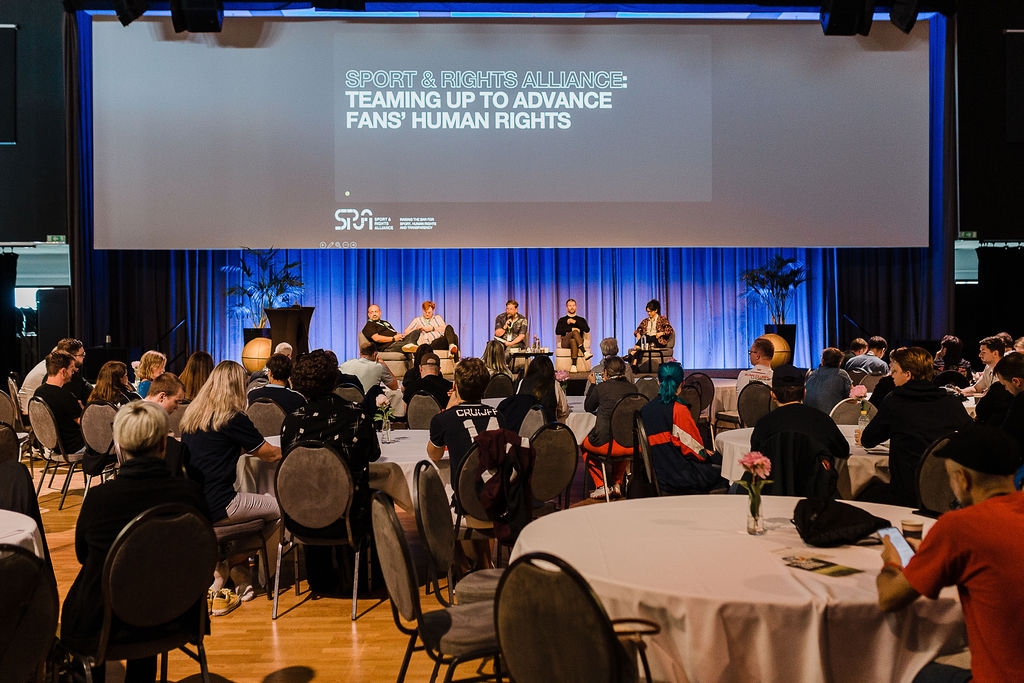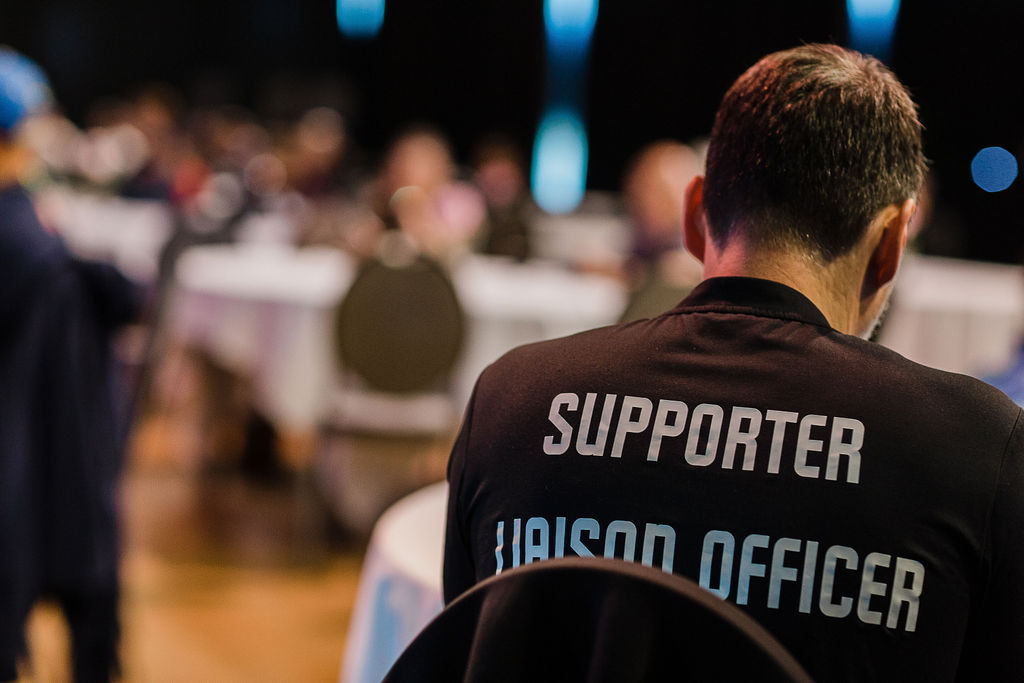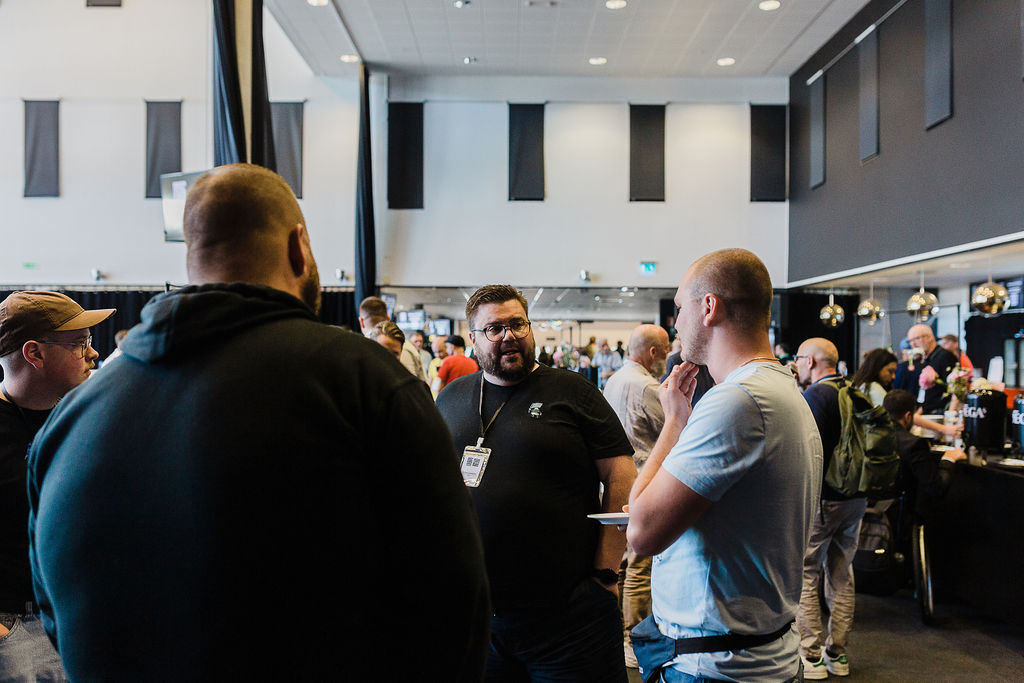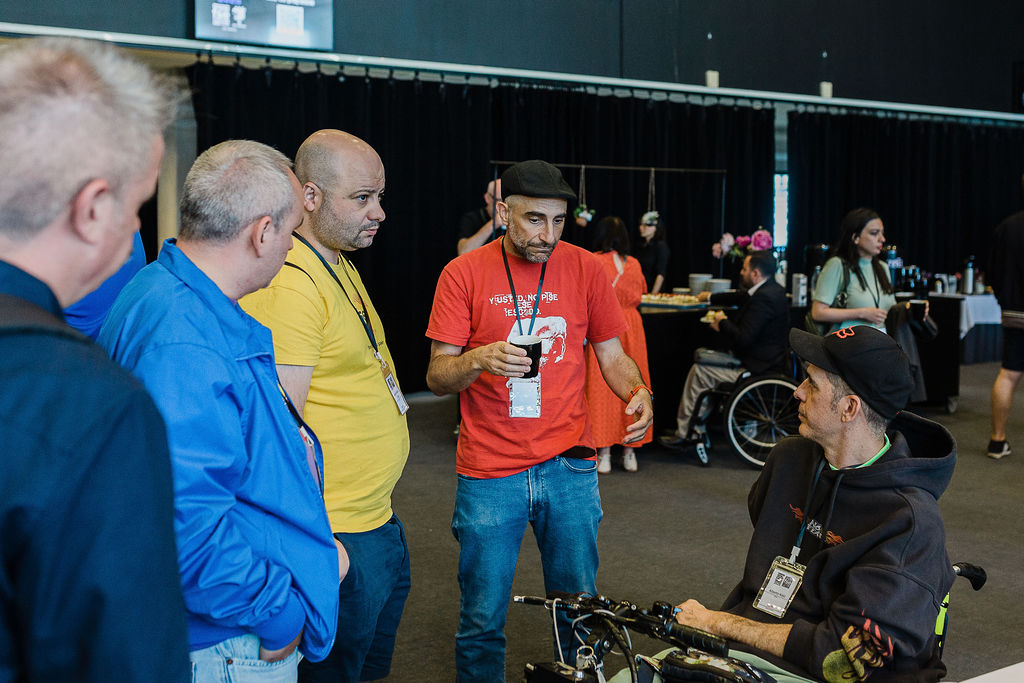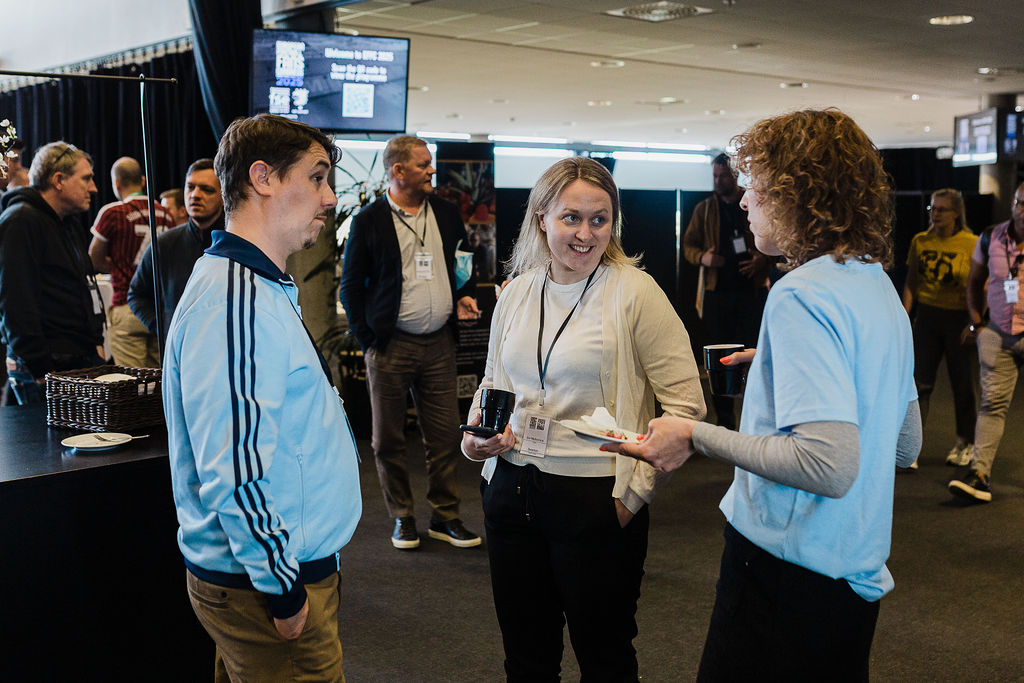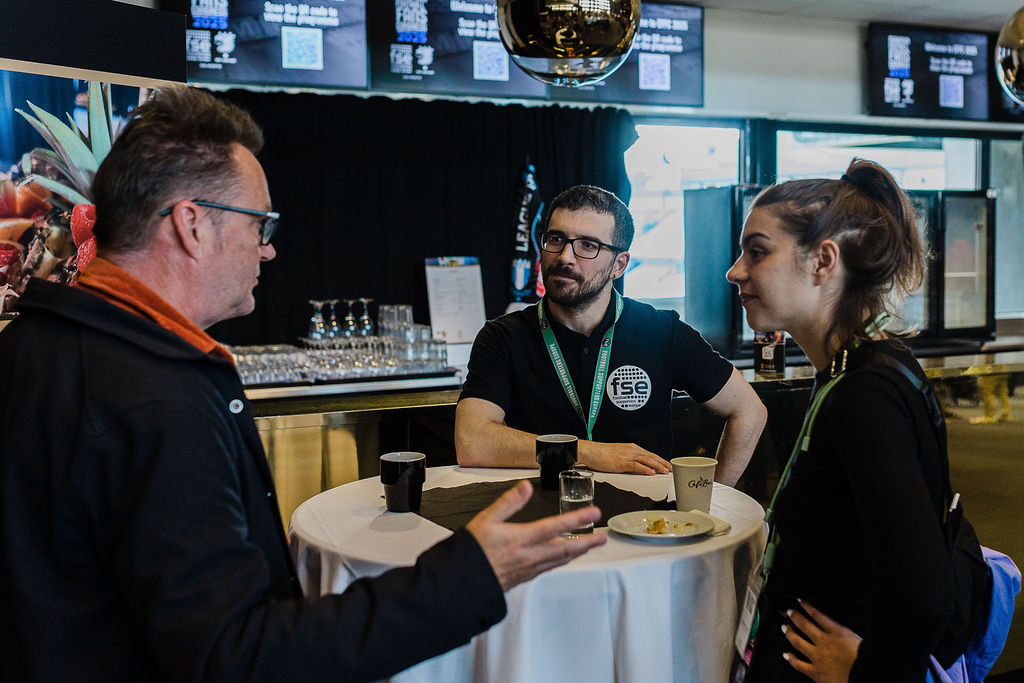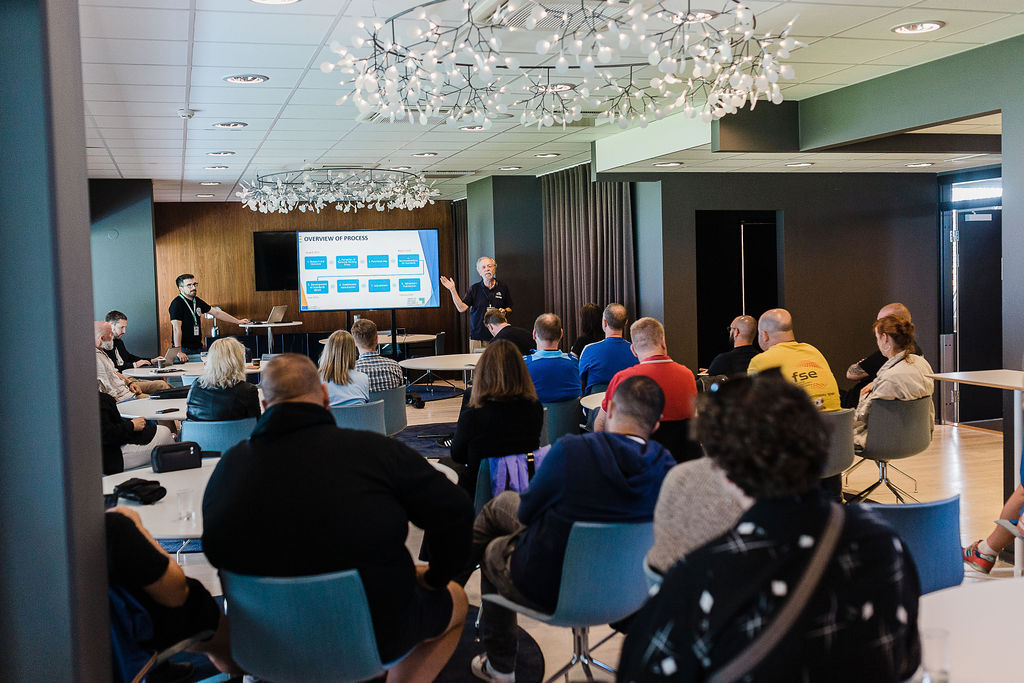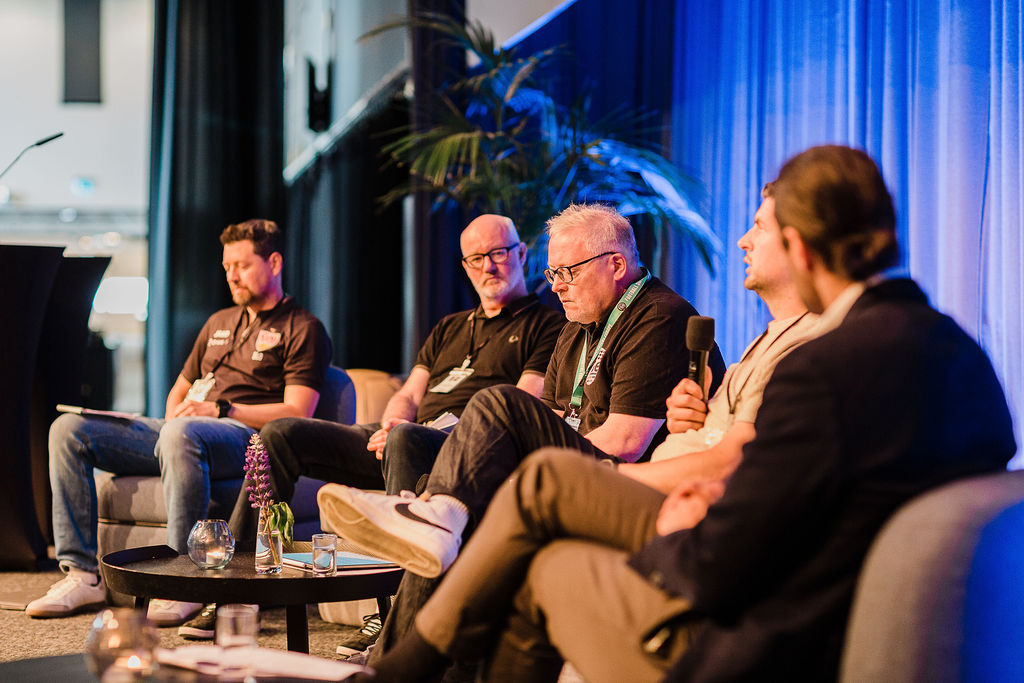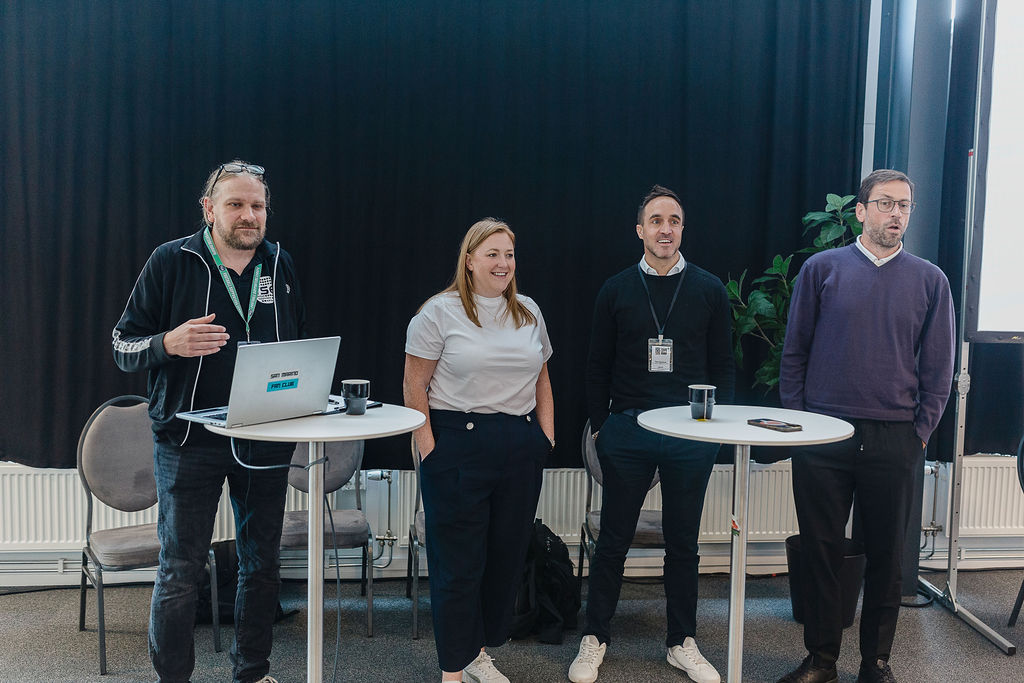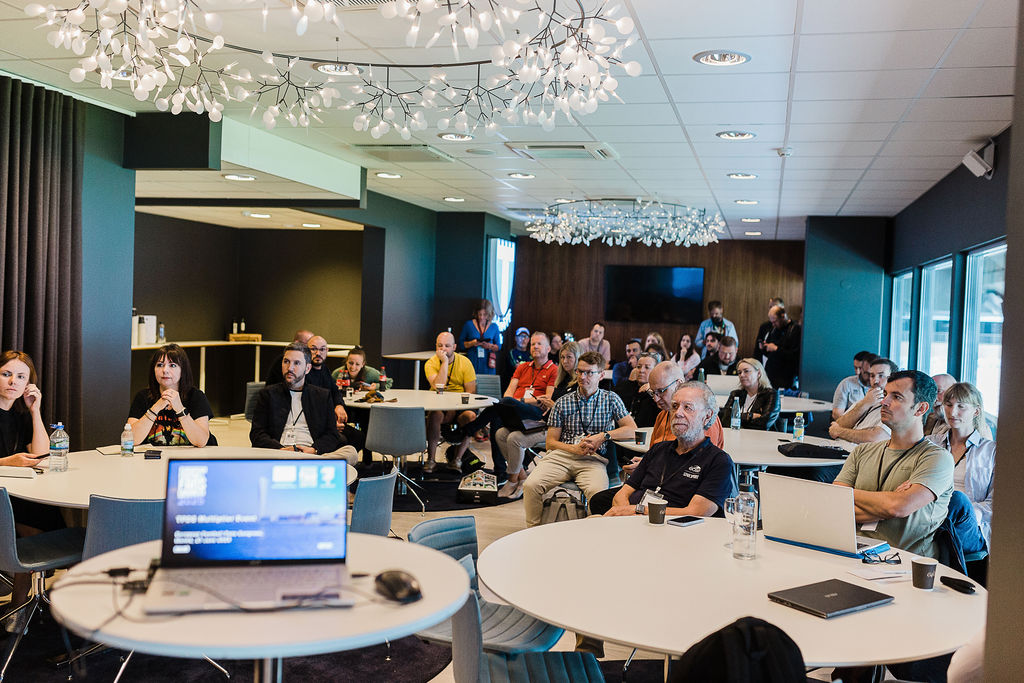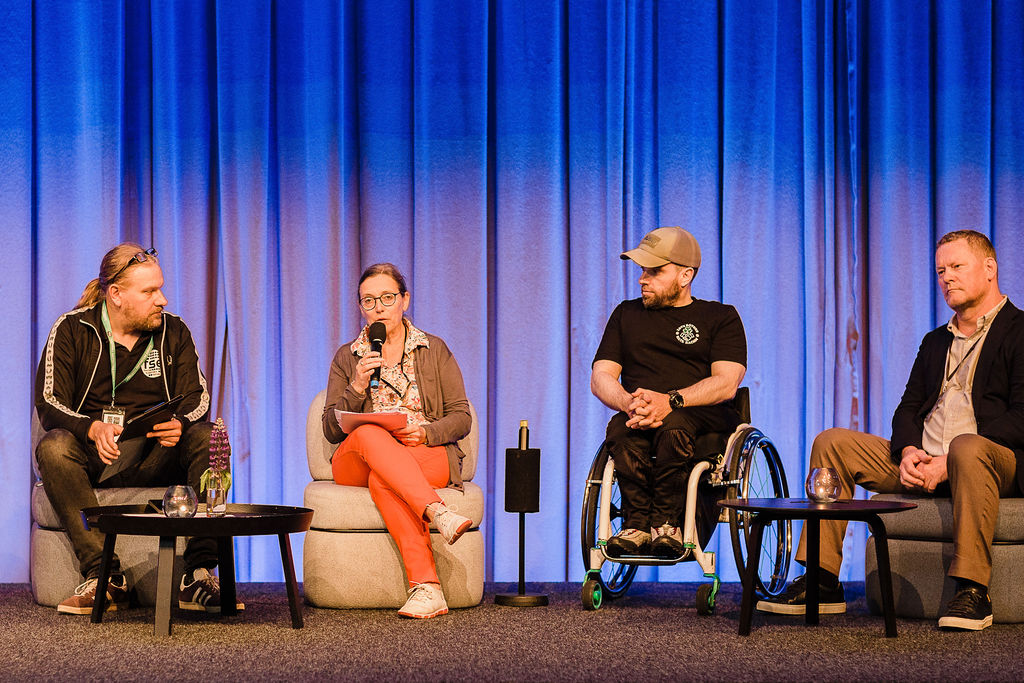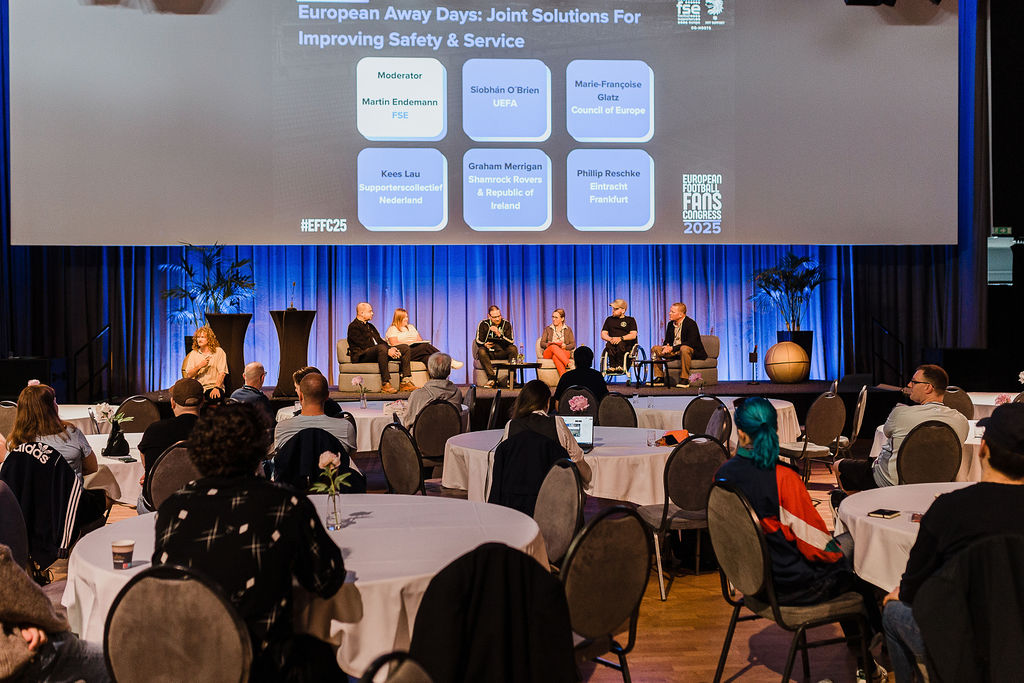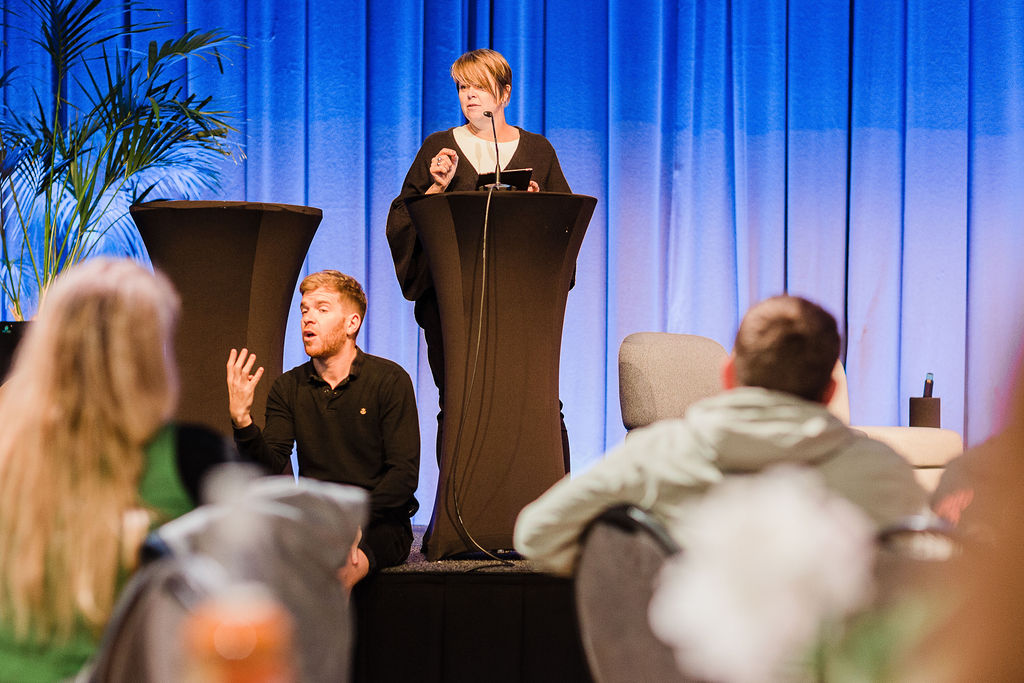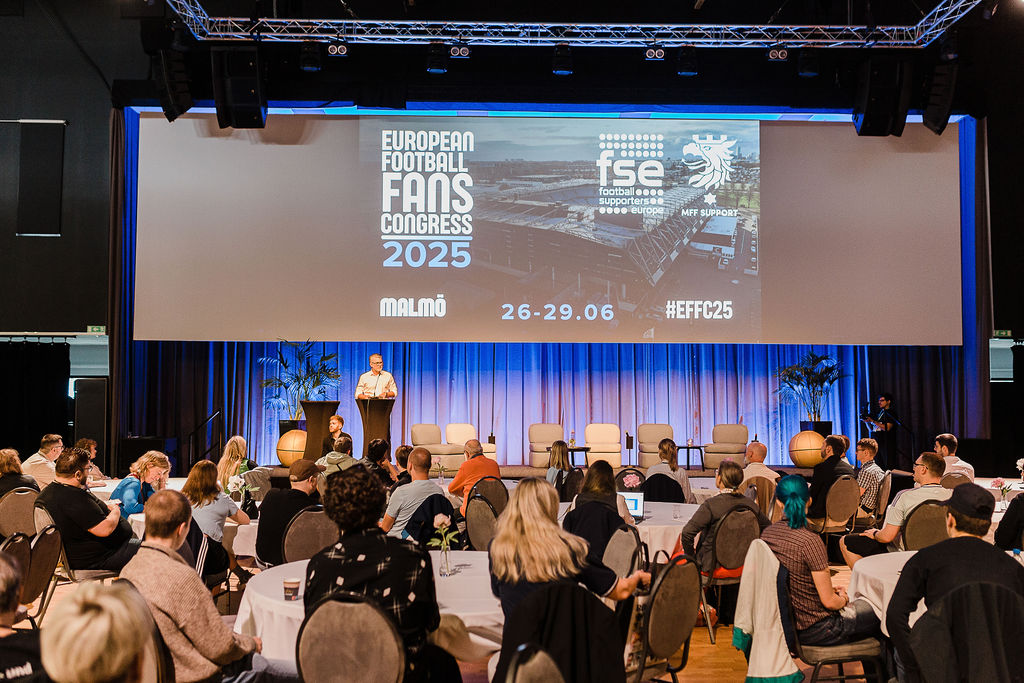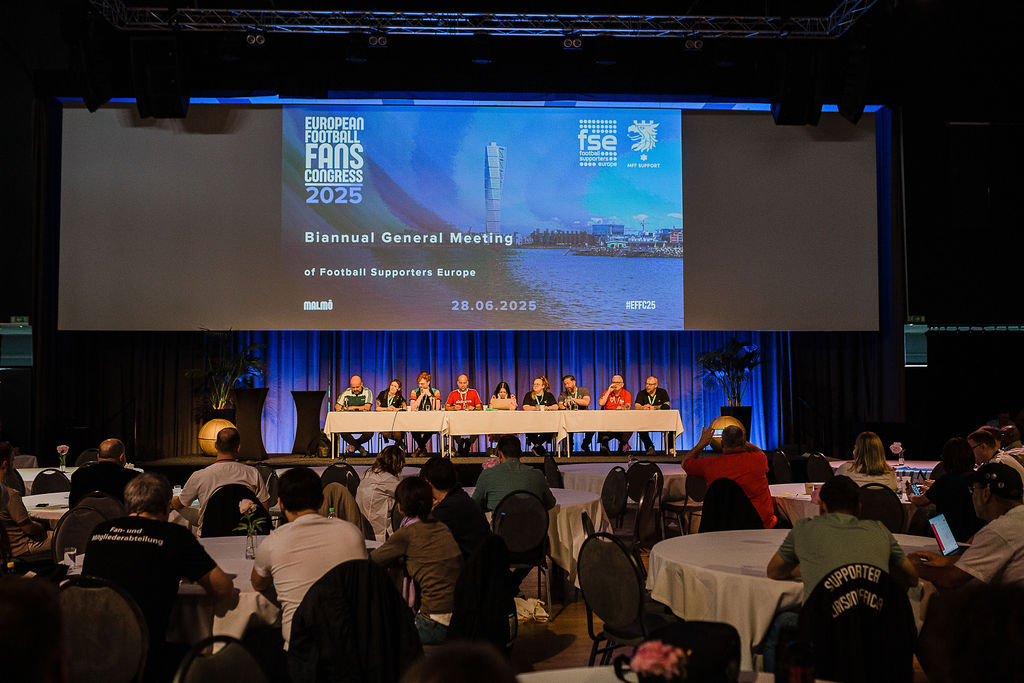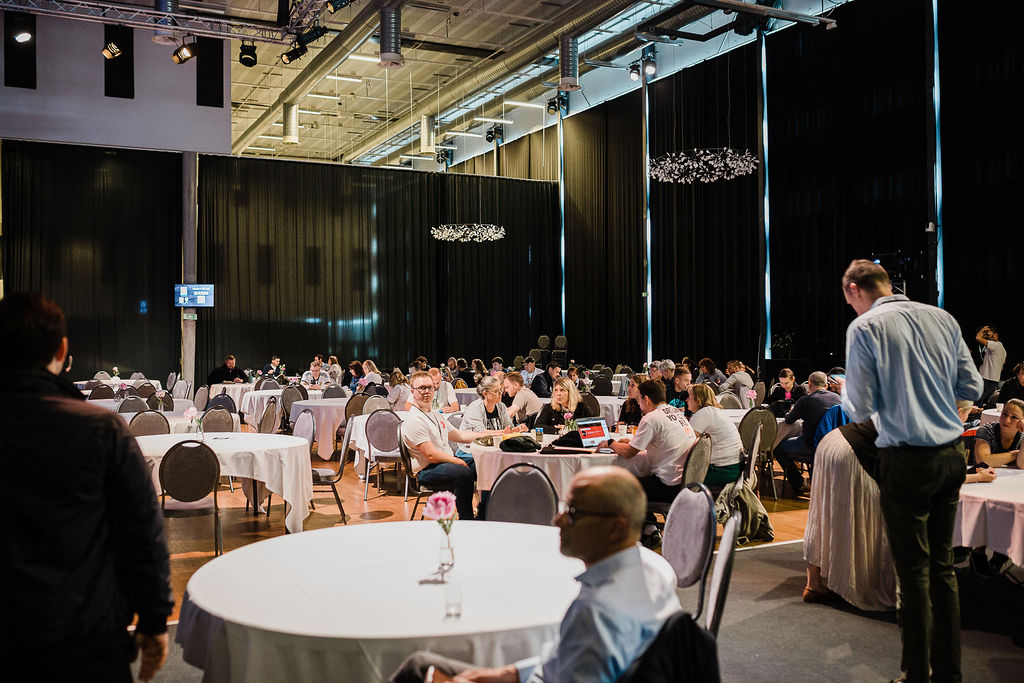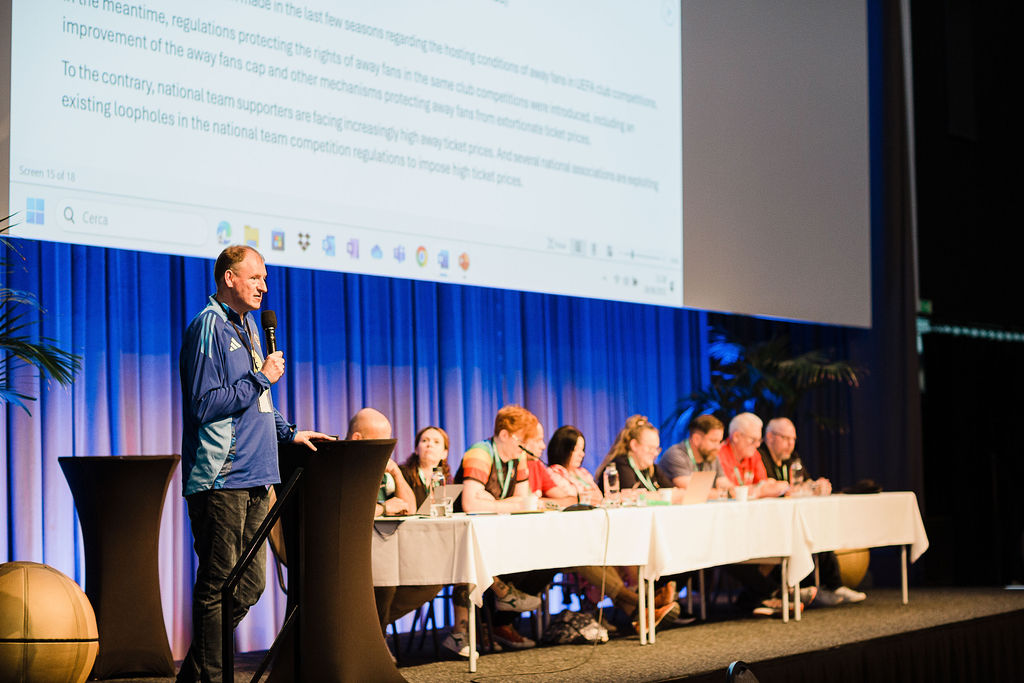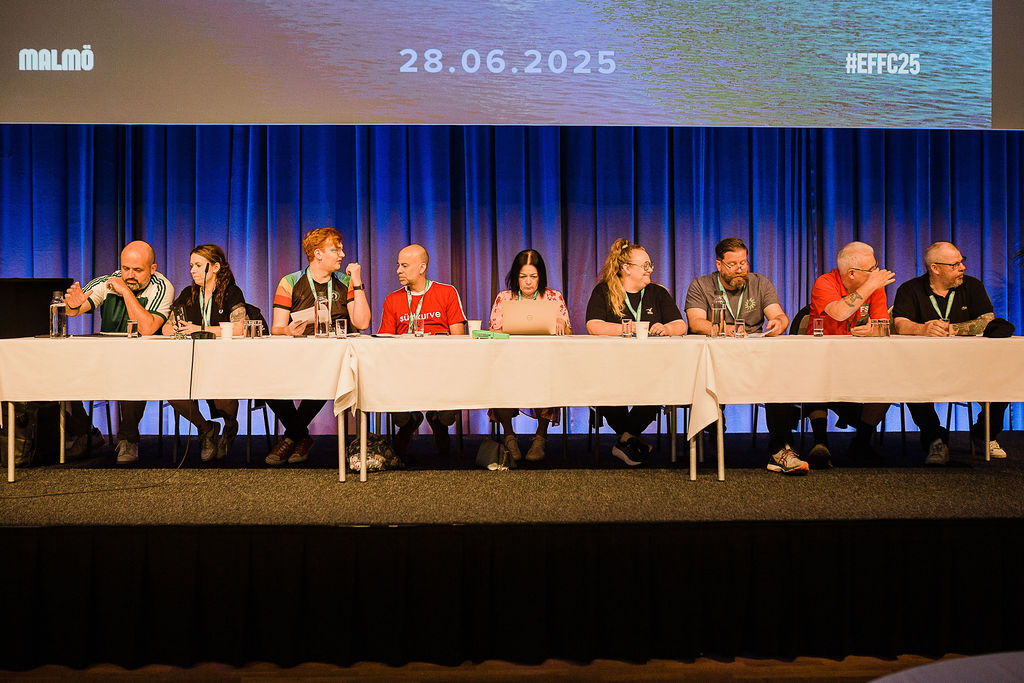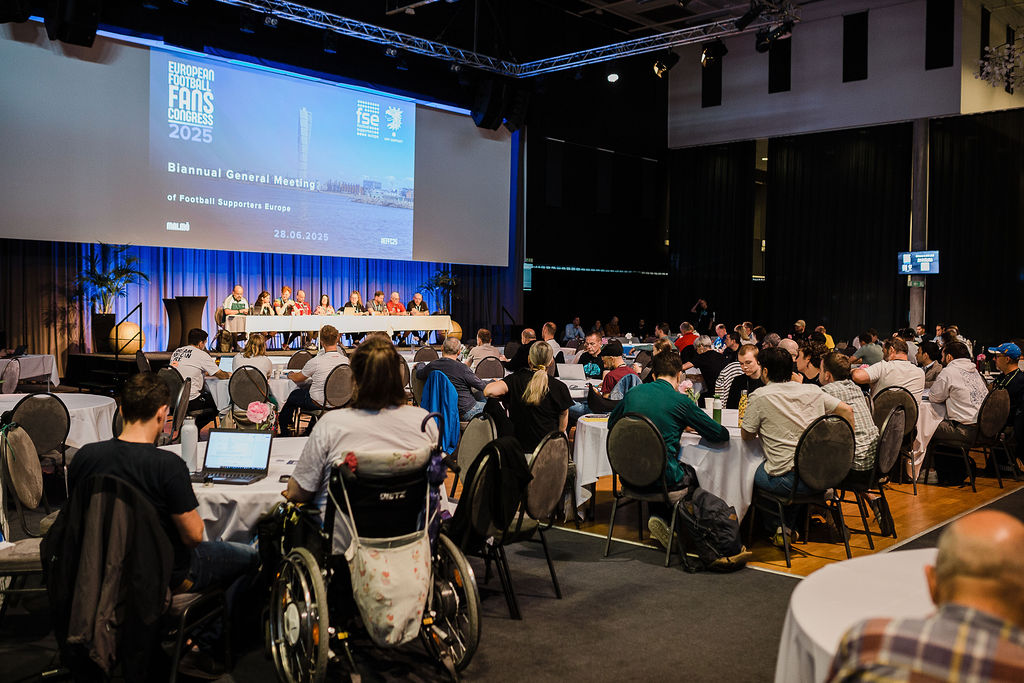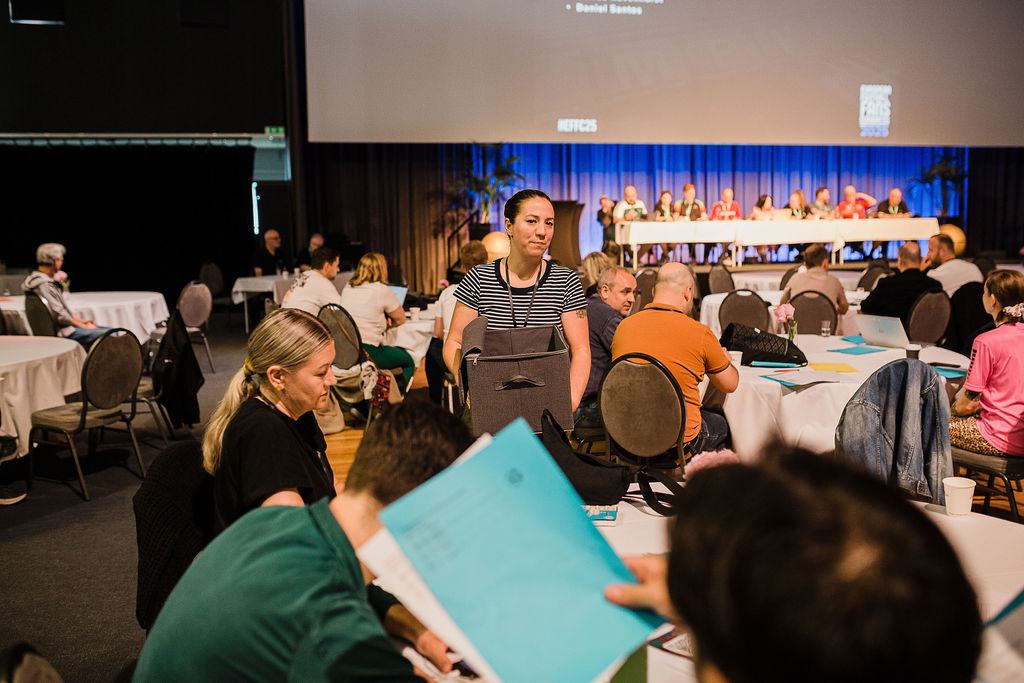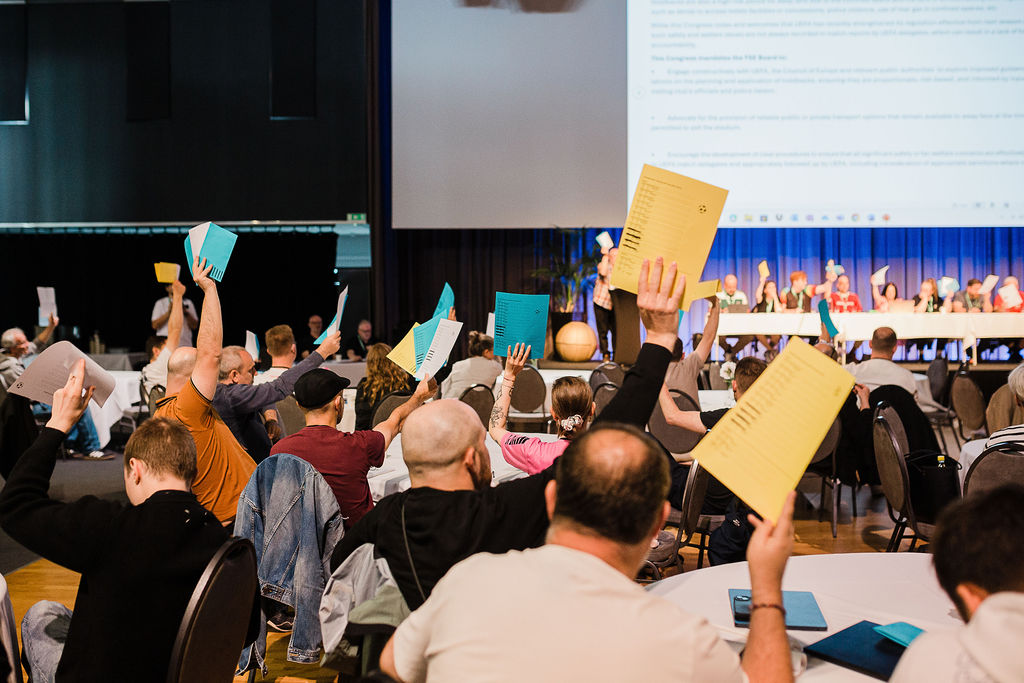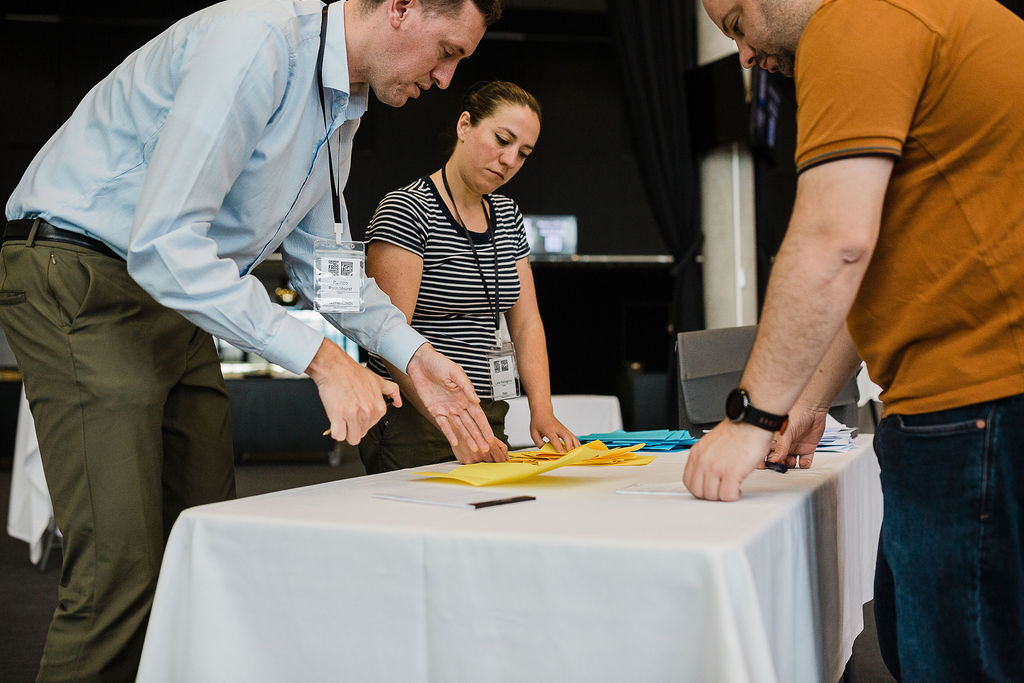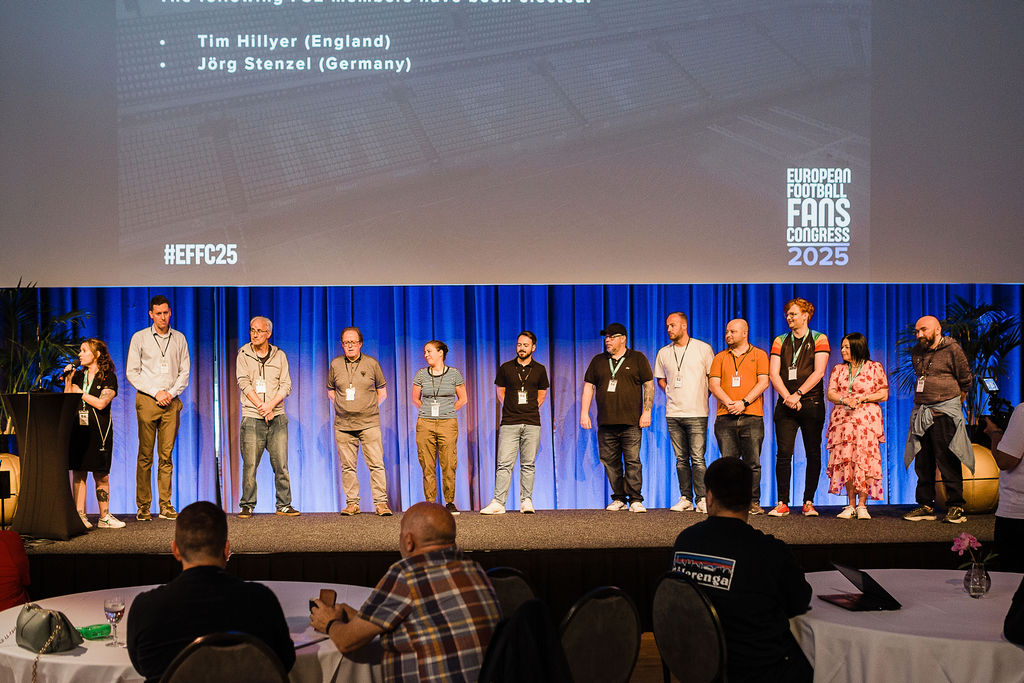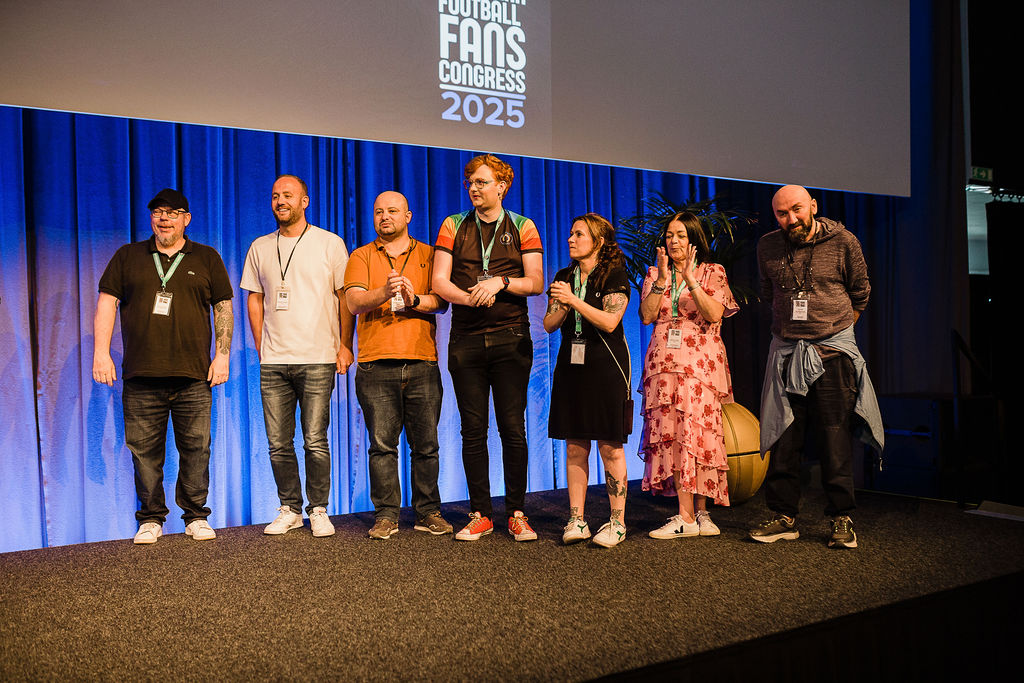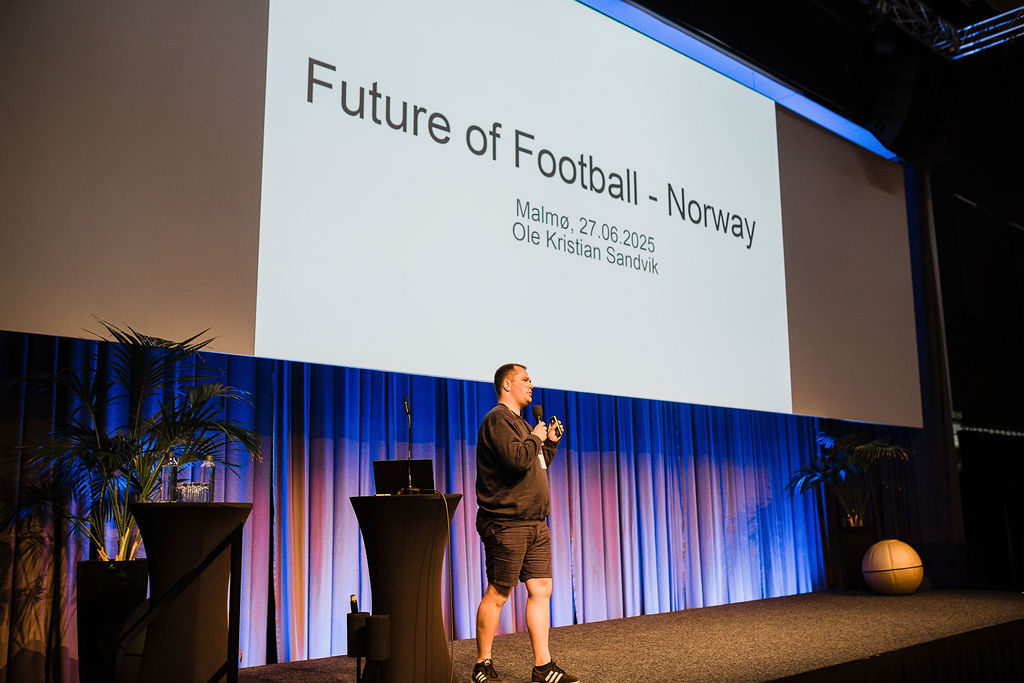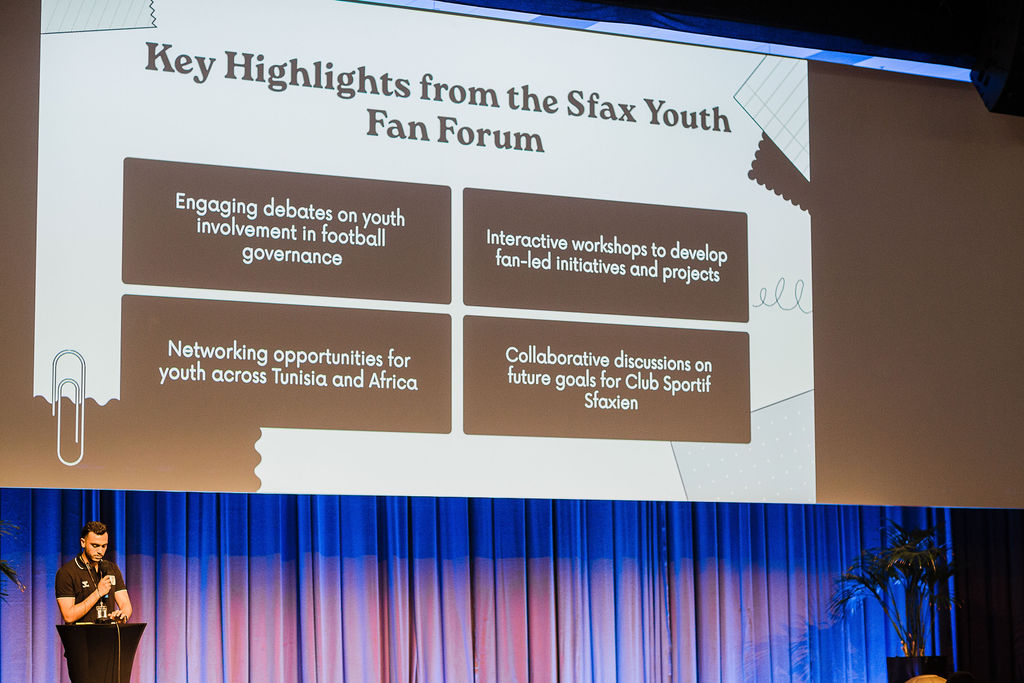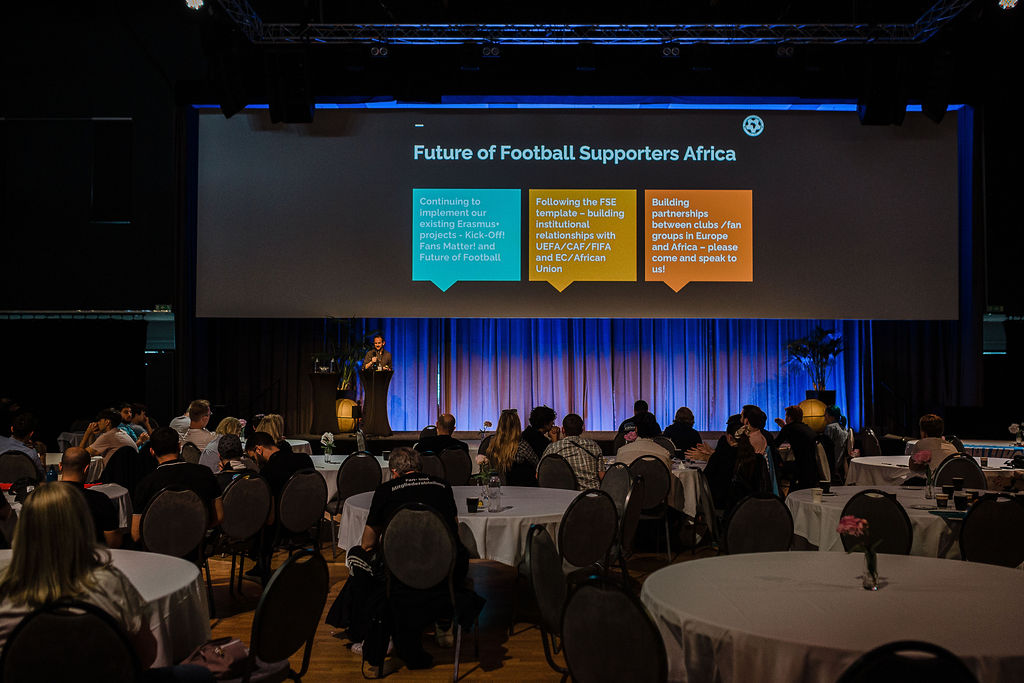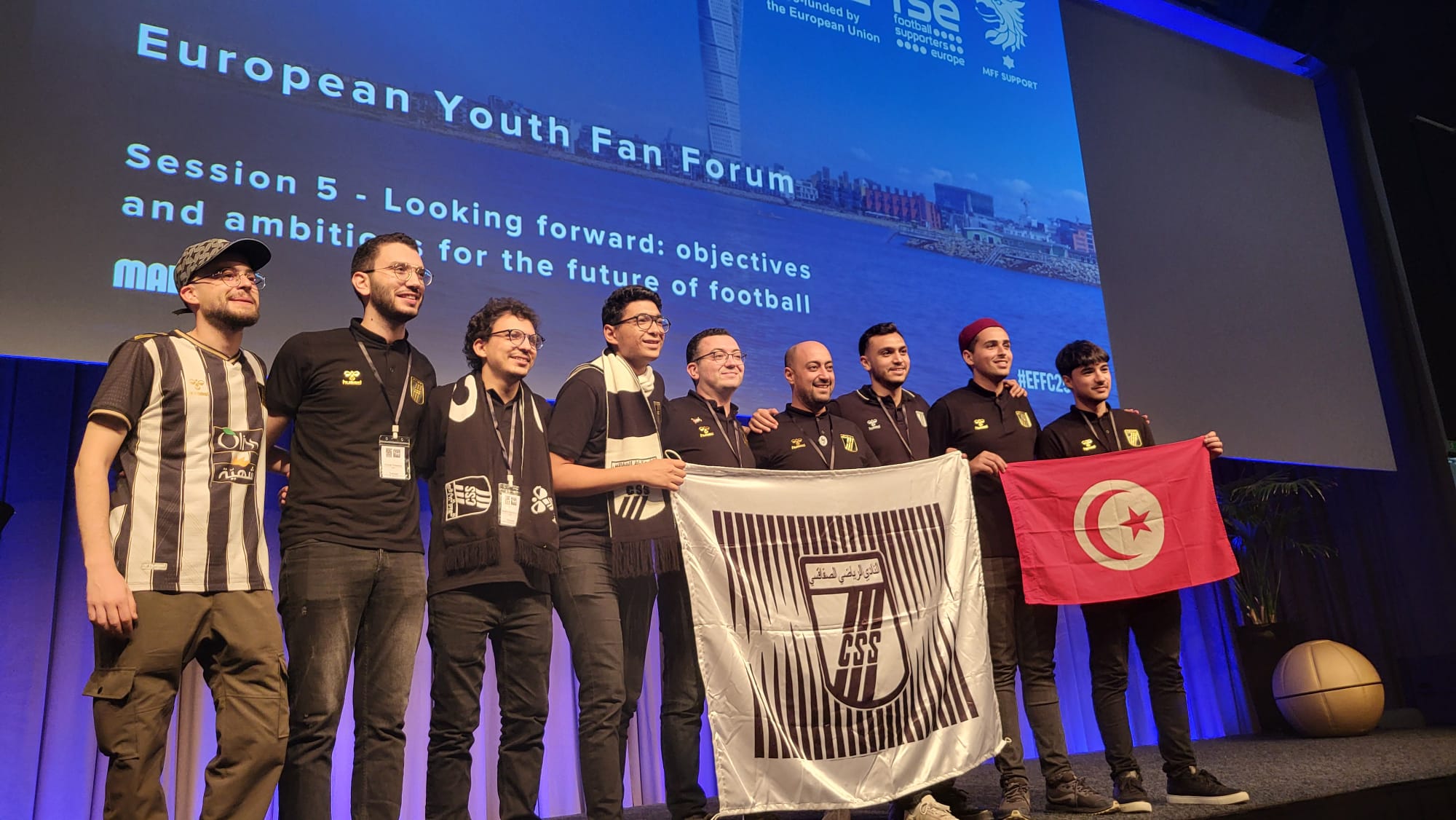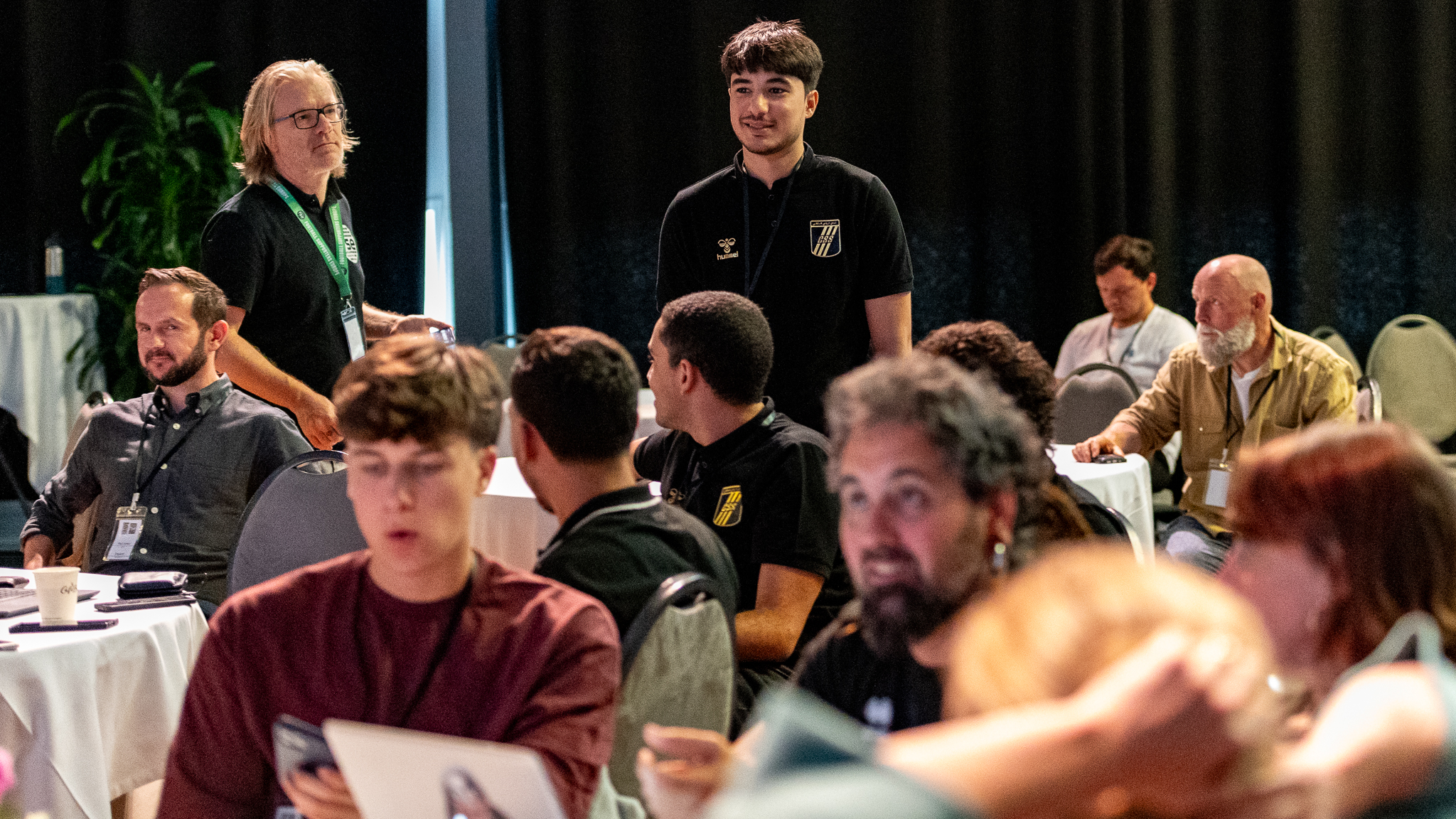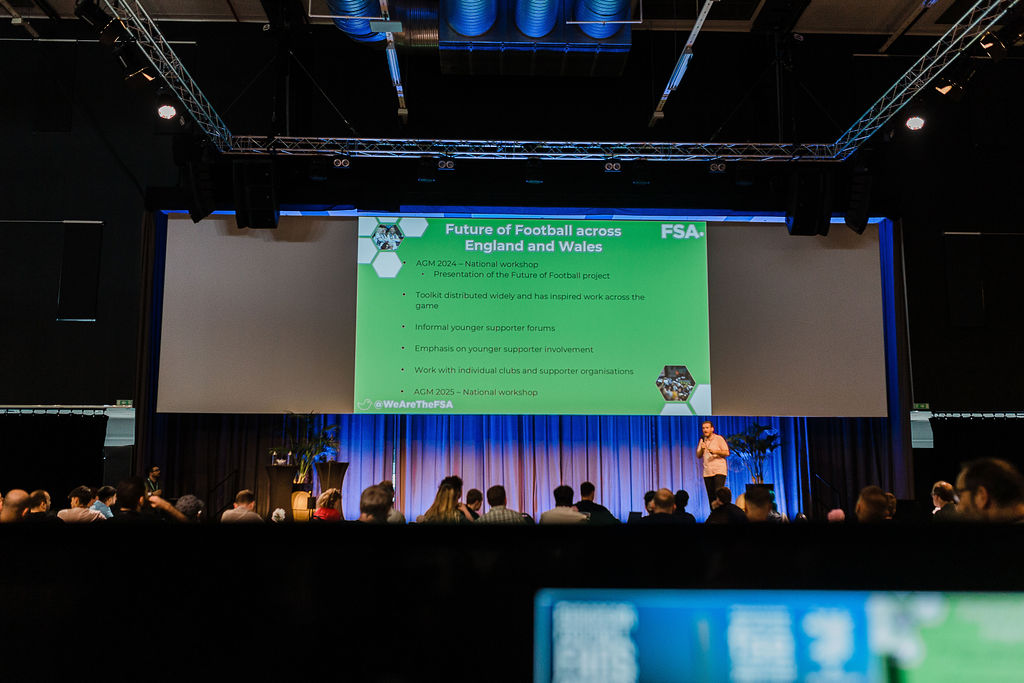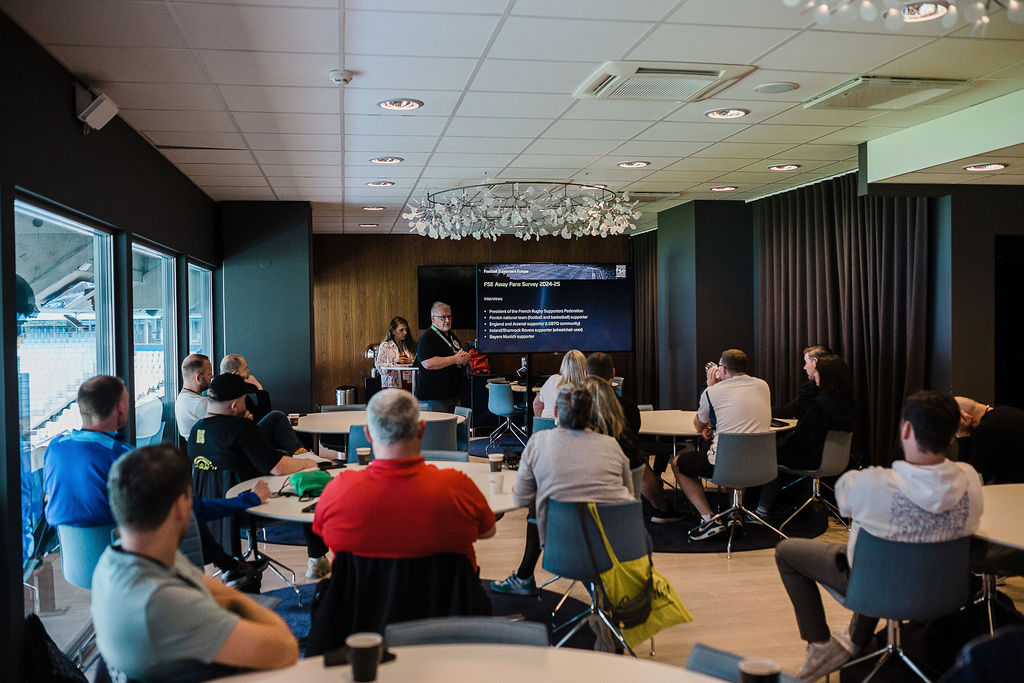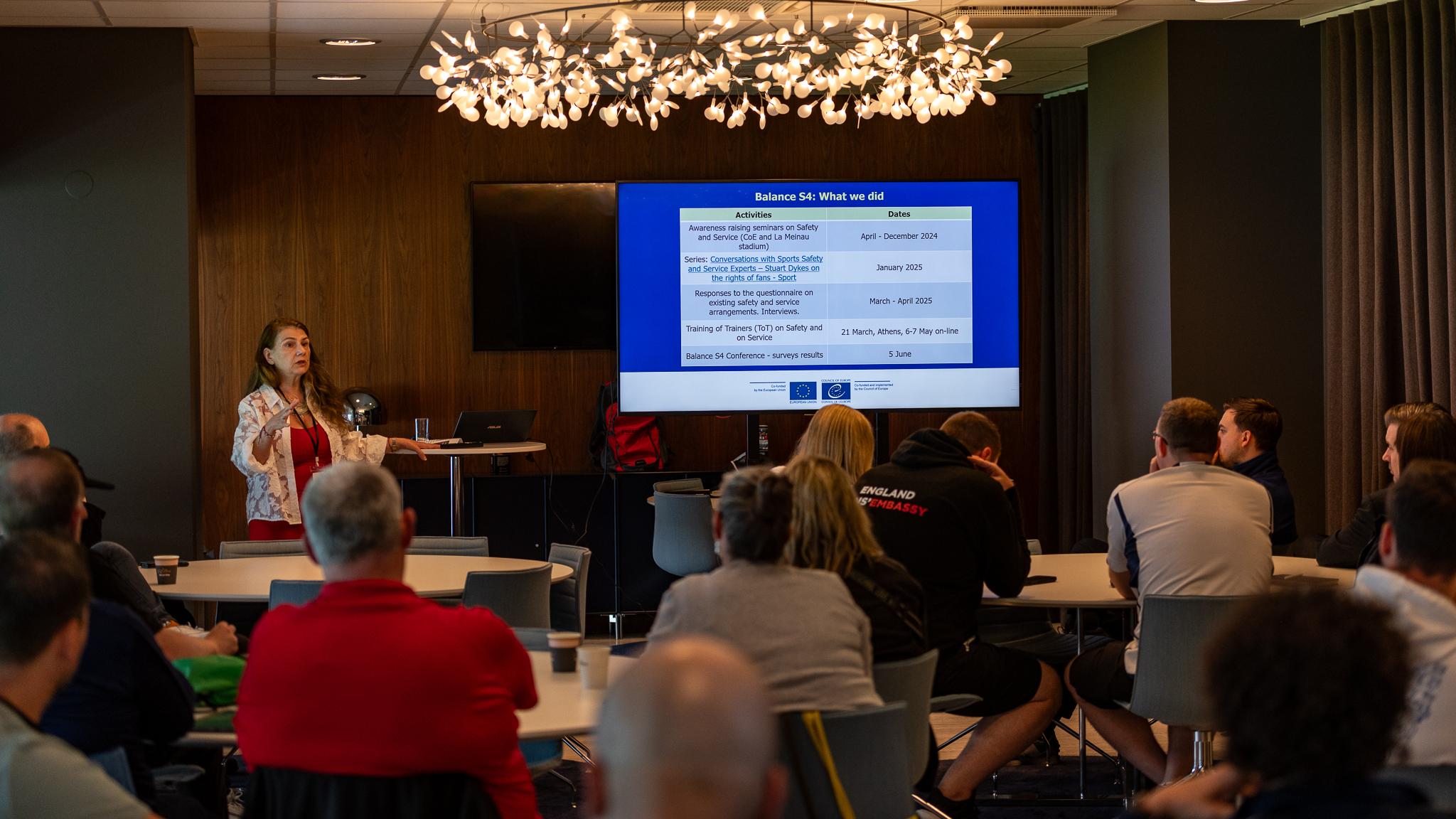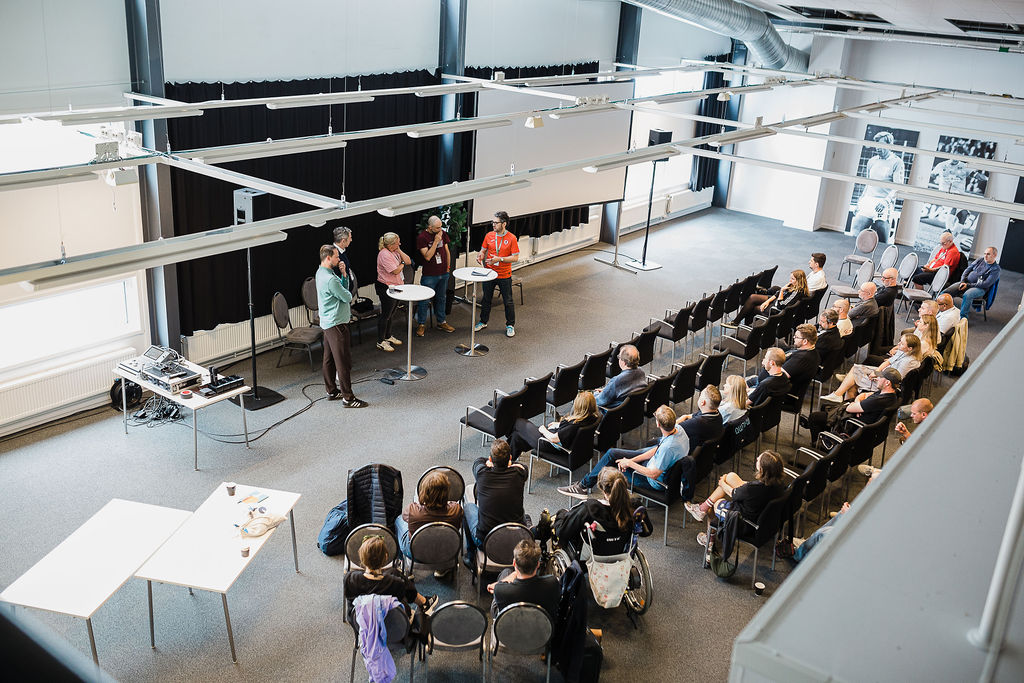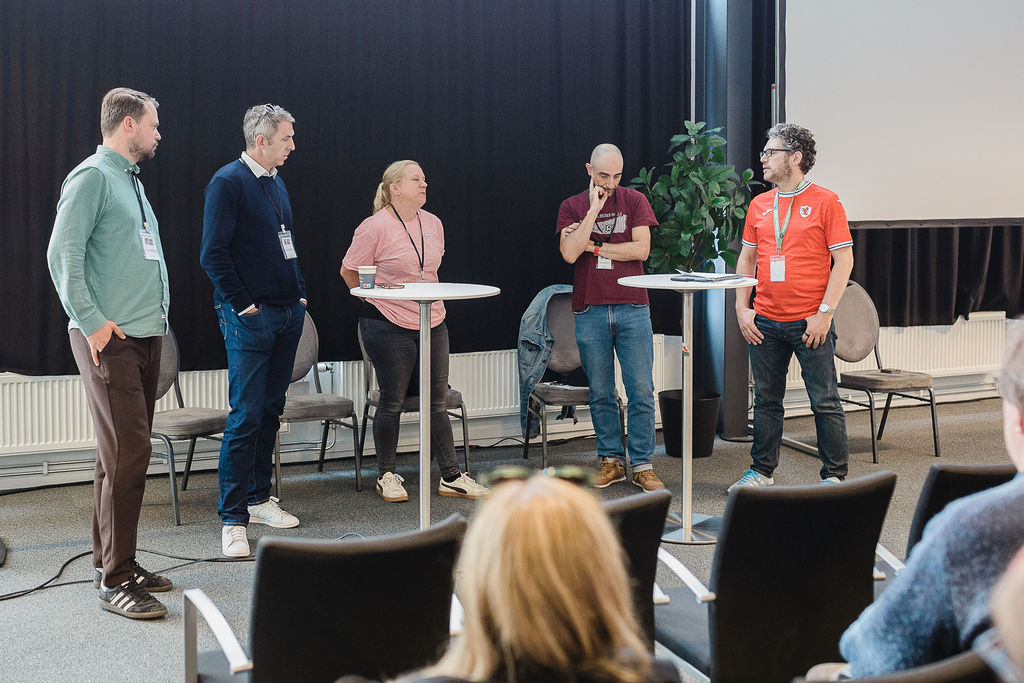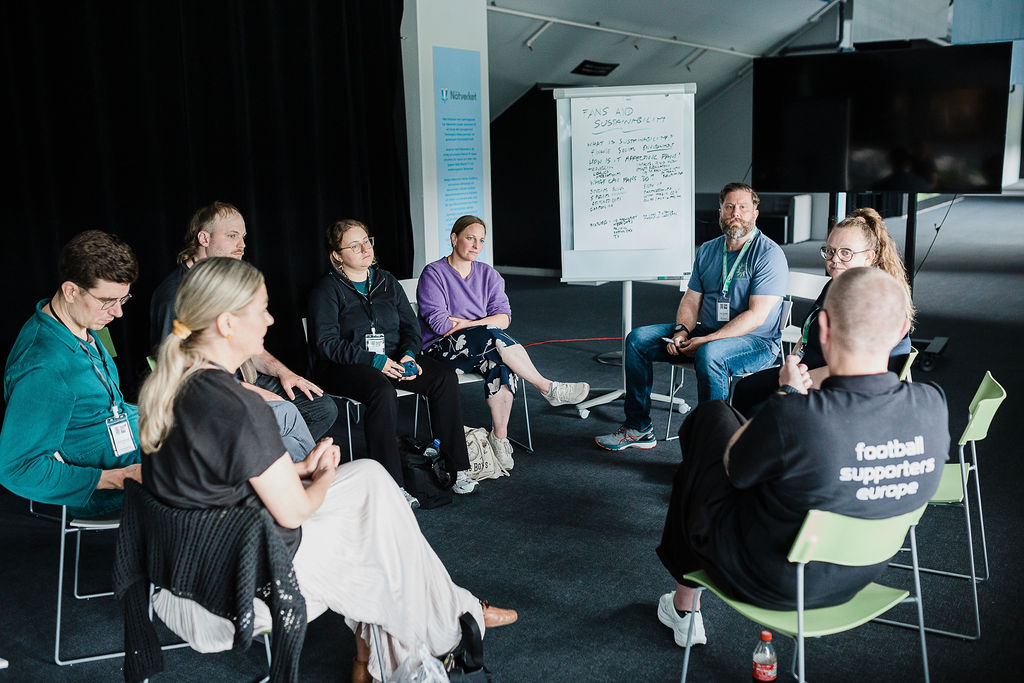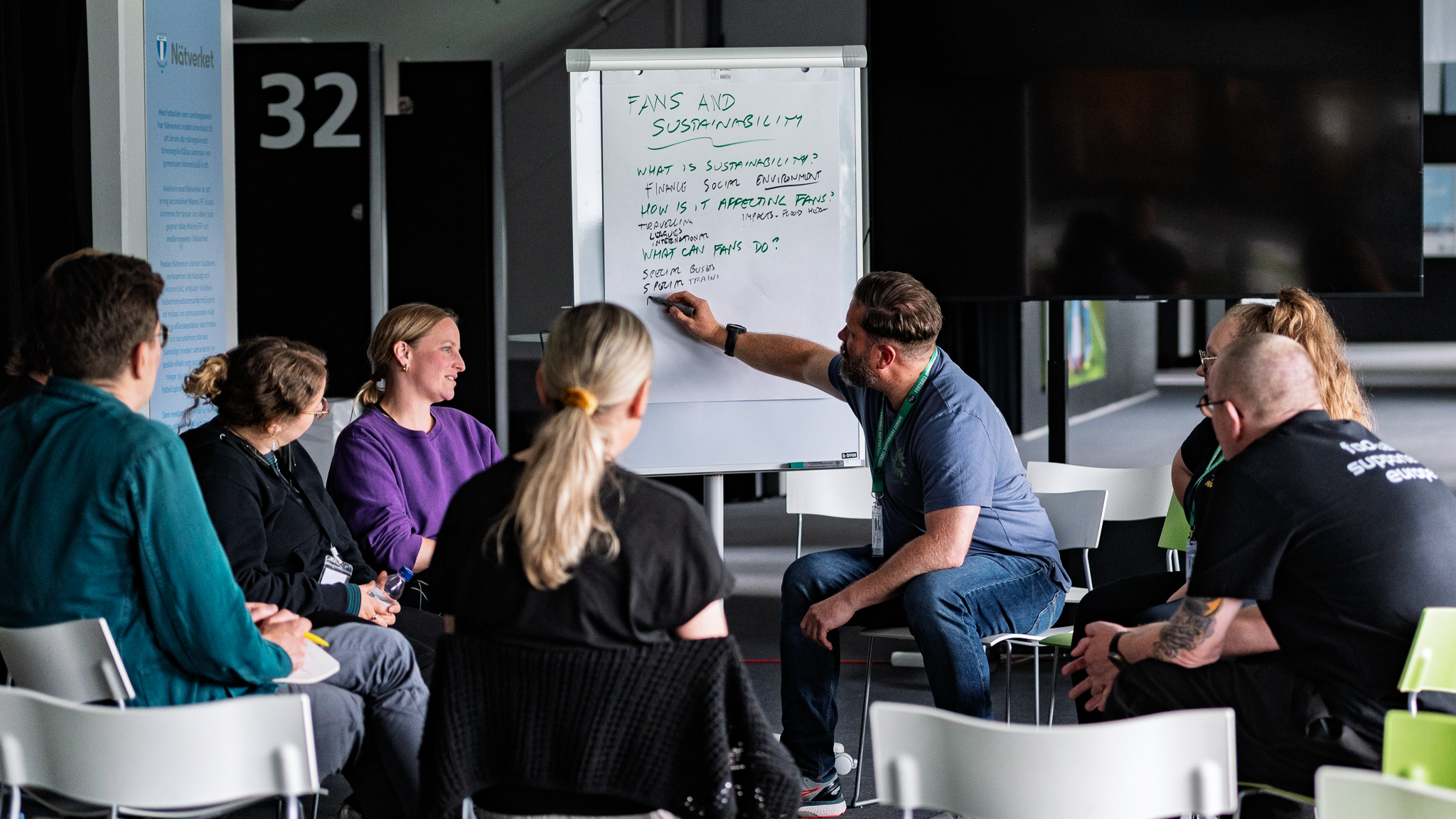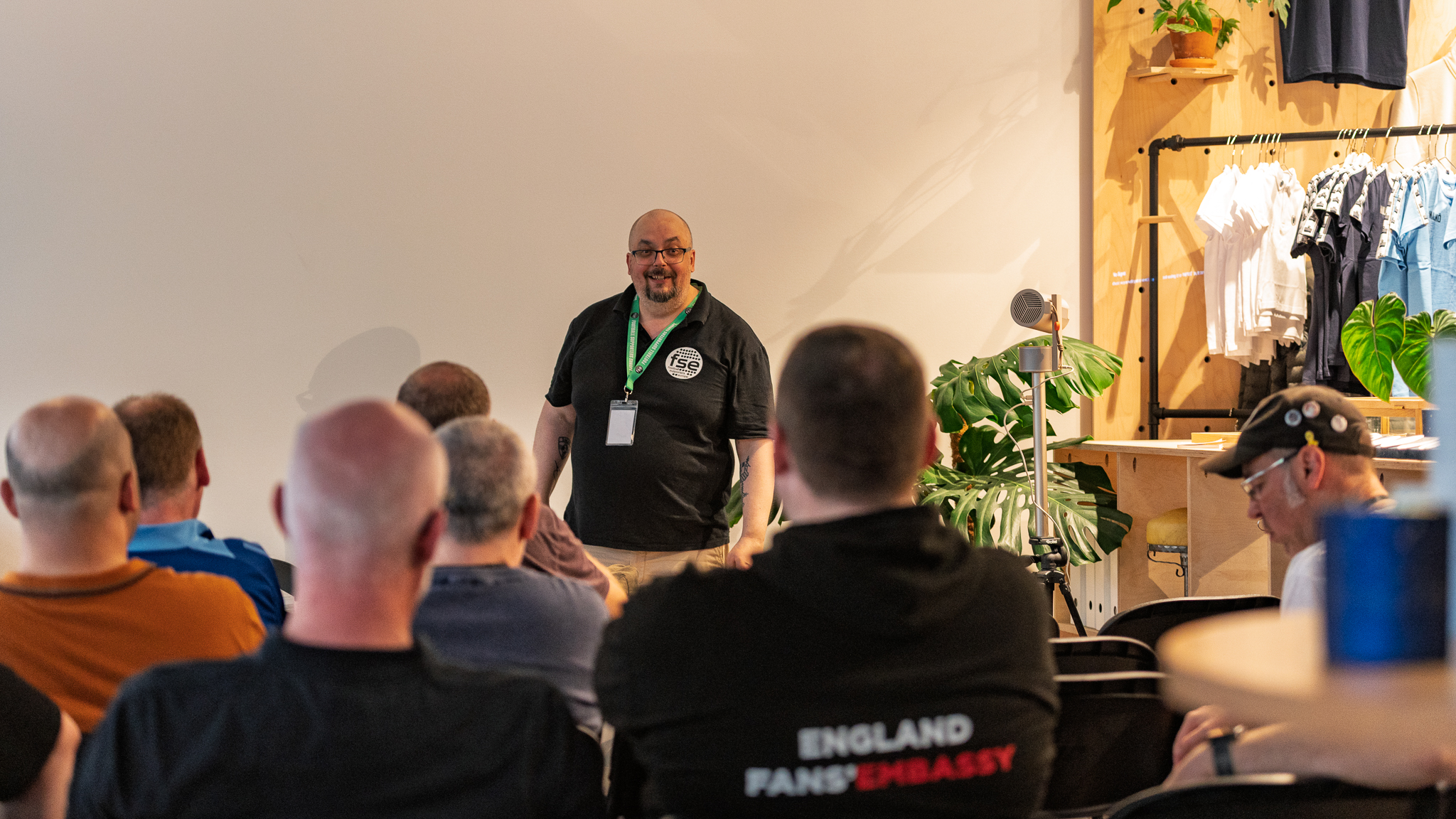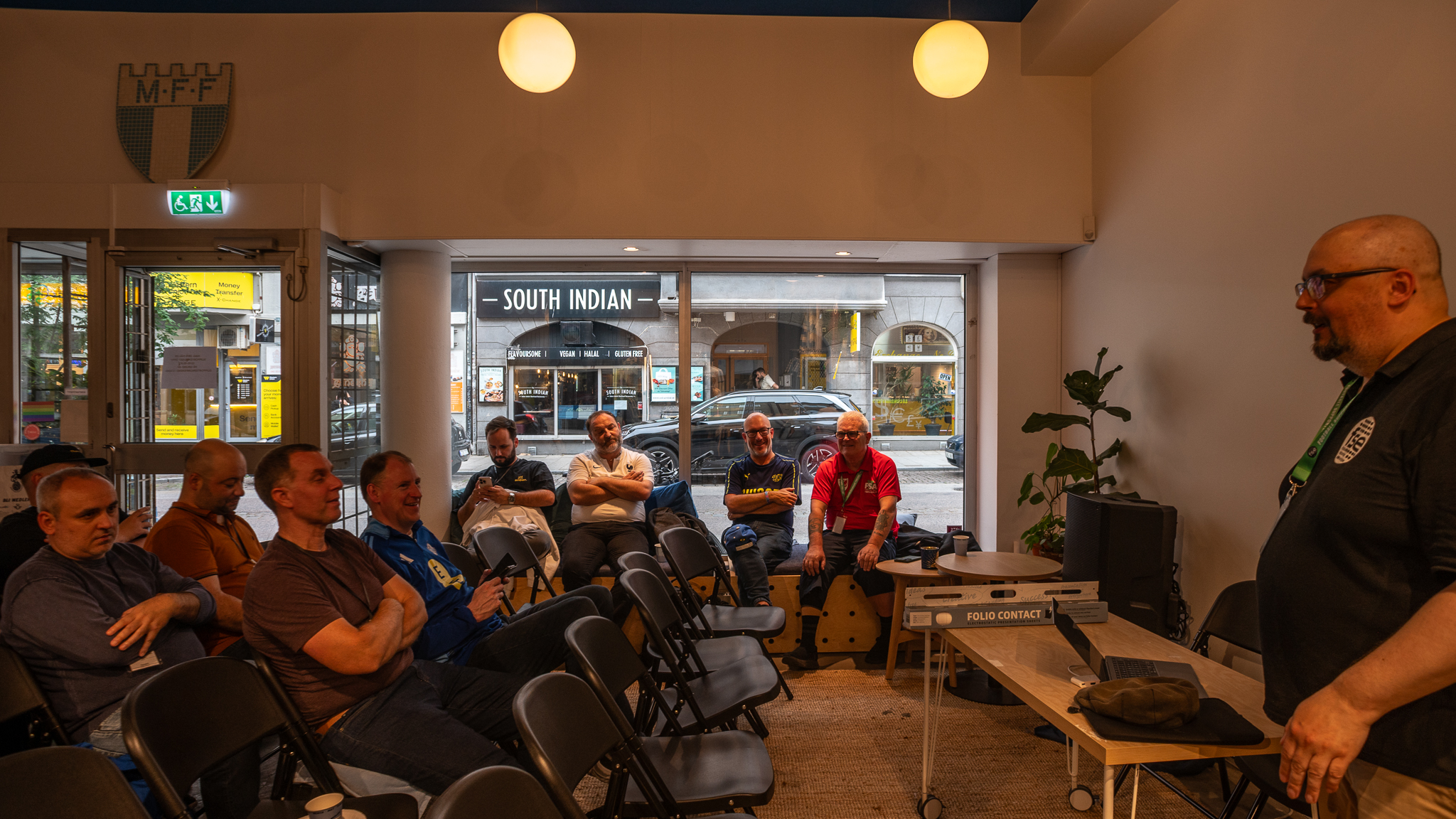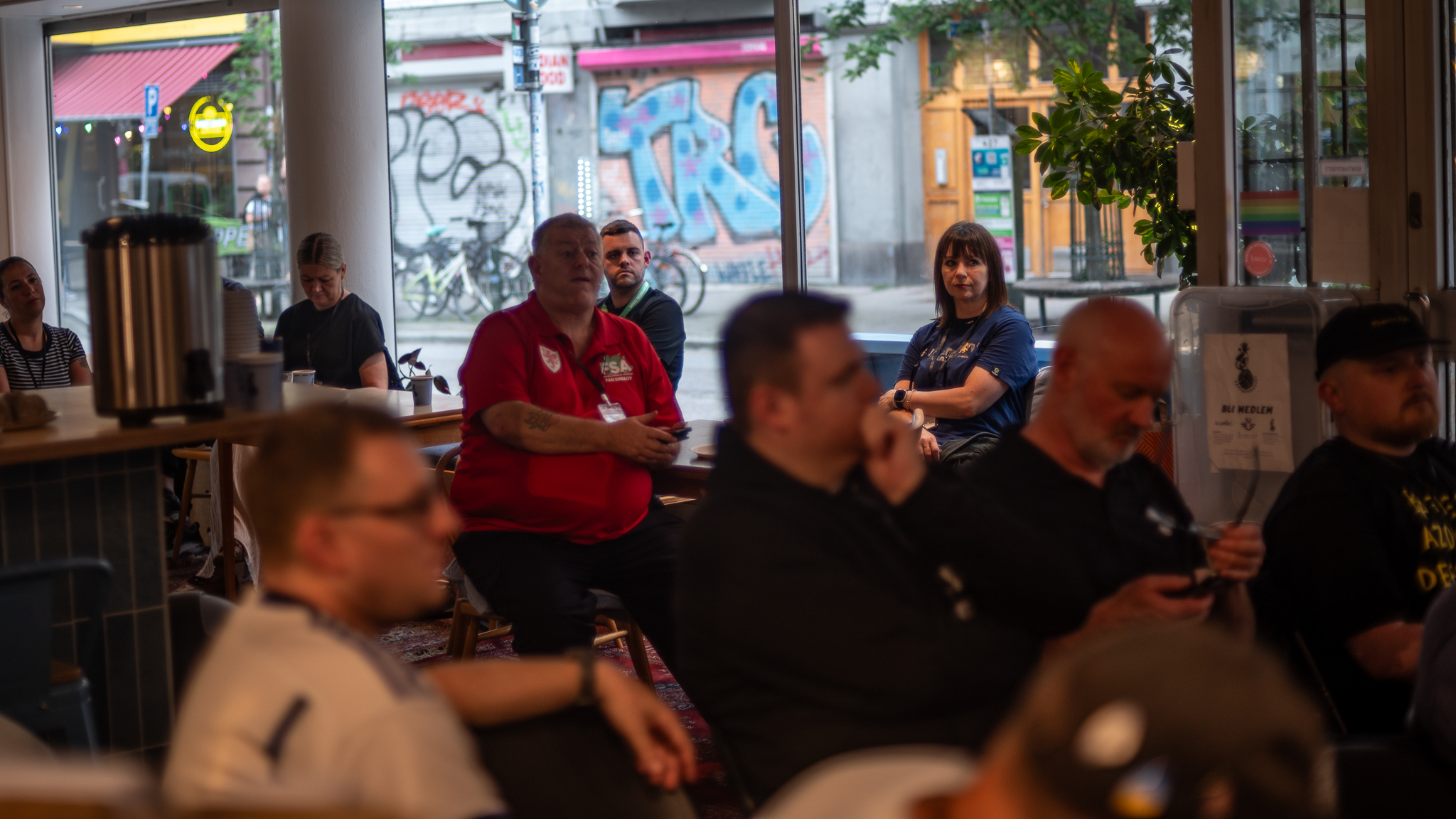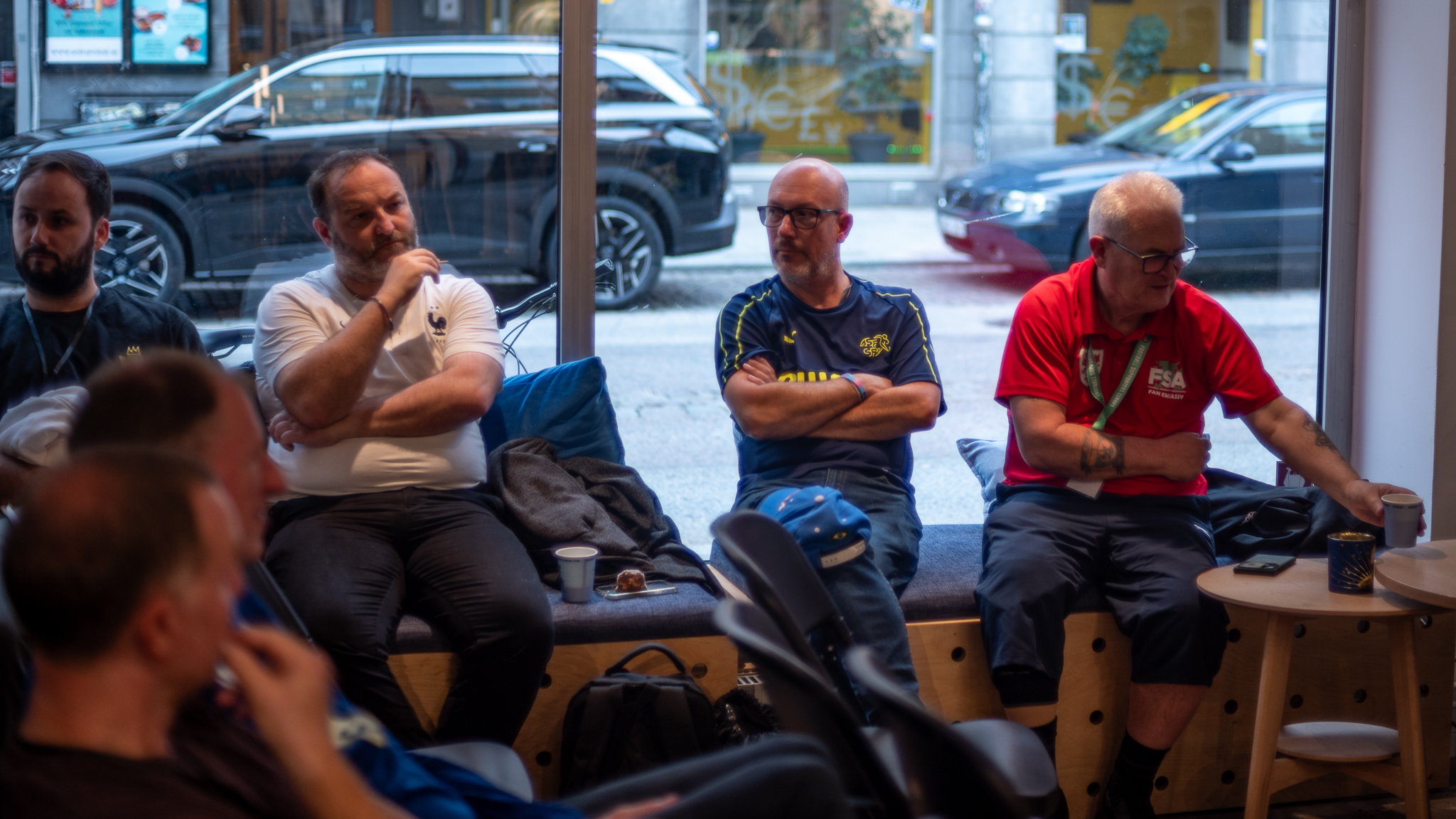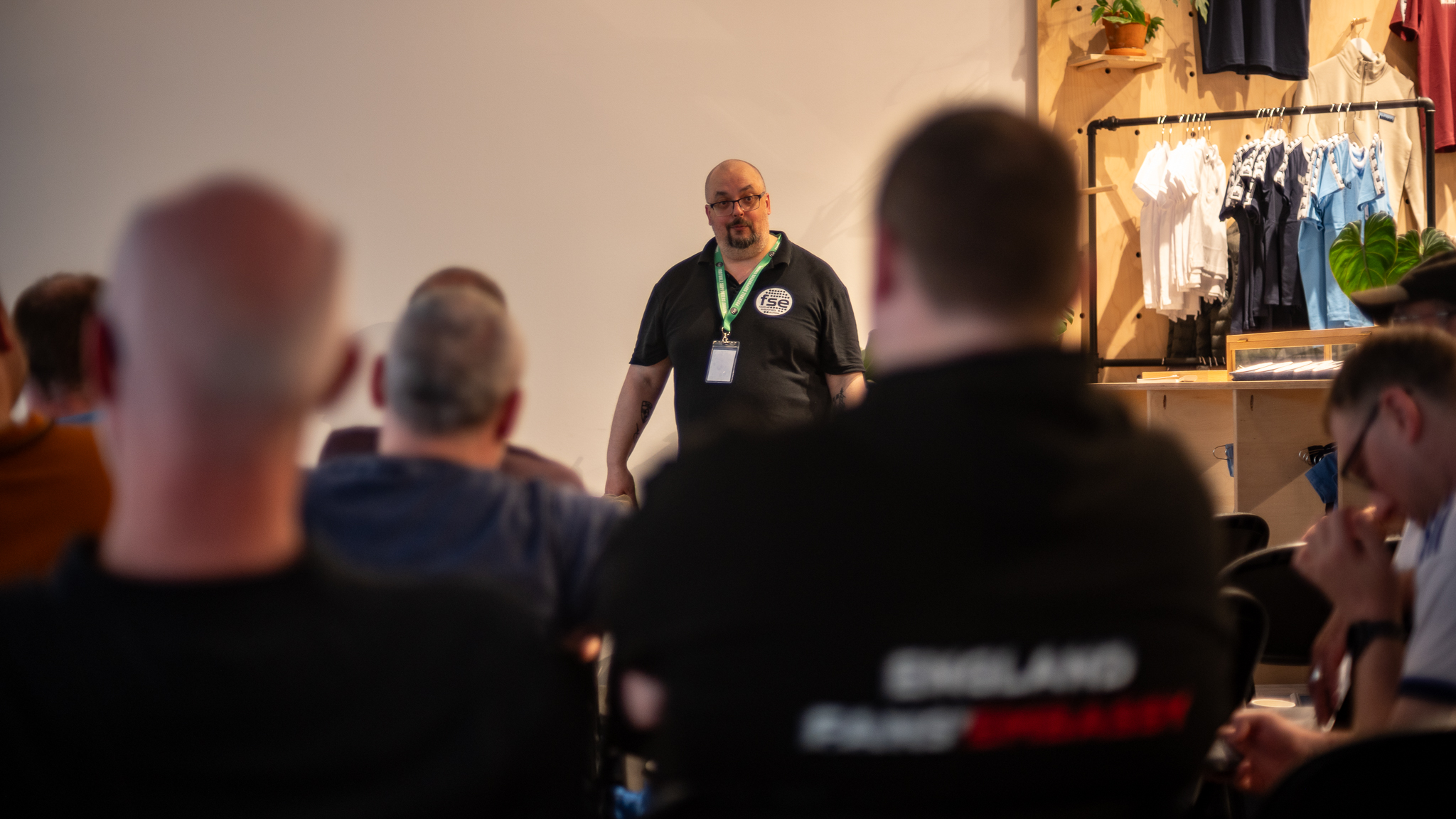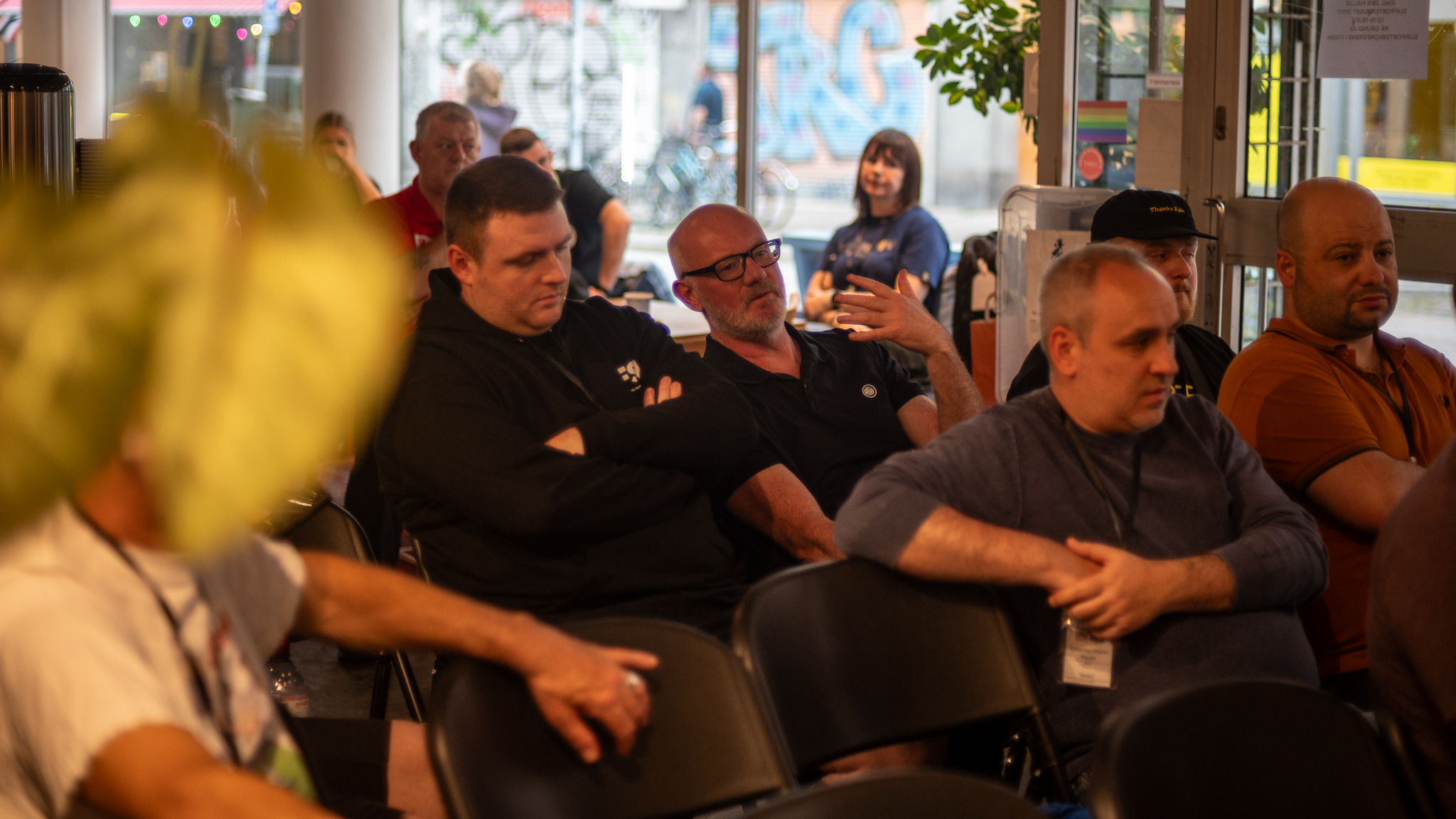Supporters from across Europe and beyond attended the European Football Fans Congress 2025 (EFFC 2025) in Malmö in June. Football Supporters Europe (FSE) co-hosted the four-day event with MFF Support, the official supporters association of Malmö FF.
EFFC 2025 was one of the most diverse and representative editions to date. Over 30 countries were represented, alongside more than 80 National Supporters Organisations and Local Groups. The programme also included the launch of FSE’s Disability & Inclusion Fan Network and the first-ever European Youth Fan Forum – two milestones in ensuring broader representation and inclusion.
We were also pleased to be joined by several key stakeholders, including UEFA, European Leagues, European Club Association, FIFPRO Europe, Union of European Clubs, and the Council of Europe, in addition to several National Associations, football leagues, and NGOs.
SLO Network
Held on 25–26 June in Malmö ahead of EFFC 2025, the annual SLO Network Meeting brought together a record 50+ supporter liaison officers (SLOs) and national coordinators from 20 European countries. Organised by FSE, the two-day meeting remains a cornerstone of the SLO calendar, offering a unique space for SLOs to connect, share experiences, and develop solutions to common challenges.
The agenda covered a wide range of topics, from access to tifo materials at away games and improving service levels in away sectors, to the future of the SLO role. UEFA representatives also joined the meeting to present new UEFA Club Competitions (UCC) regulations and respond to questions from attendees.
Disability & Inclusion Fan Network Launch Meeting
On Thursday afternoon before the EFFC 2025 opening night, supporters from 17 countries came together for the first official meeting of FSE’s Disability & Inclusion Fan Network (D&IFN). Backed by UEFA, the session set out the network’s priorities for the year ahead, with a focus on strengthening accessibility, amplifying the voices of disabled supporters, and driving inclusion across European football.
The D&IFN provides a structured platform for fans with disabilities to share experiences, support one another, and advocate for change at all levels of the game. A steering committee was also elected to guide the network’s development and ensure representation remains central to its mission.
Read more about the D&IFN Network Meeting launch here.
EFFC 2025: Opening Night
EFFC 2025 officially began on the Thursday evening with an opening night event at Malmö FF’s Eleda Stadion. The event began with greetings from FSE Executive Director Ronan Evain, who spoke about the importance of the European fan movement coming together to shape “the future of our game—a future where fans are respected, valued, and empowered to lead the change we want to see.”
MFF Support Chair William Galambos then introduced his association’s work and spoke about the influence of supporters in Swedish football, particularly through the 51% rule that guarantees member control of clubs.
To conclude the opening remarks, UEFA Deputy General Secretary Giorgio Marchetti addressed the audience, expressing UEFA’s pride in its longstanding relationship with FSE and the achievements to date. He concluded by asking the audience to keep challenging UEFA with constructive opinions to help drive football forwards.
The evening’s finale was an in-depth insight into football fan culture in Malmö and across Sweden delivered through a panel discussion moderated by FSE’s Tony Ernst and featuring representatives from MFF Support, Supporteruset, Malmösystrar, Swedish Professional Football Leagues, and Swedish Football Supporters Union (SFSU).
EFFC 2025: Friday
Friday morning began with opening addresses from Malmö FF CEO Niclas Carlnén and the Malmö Municipality Mayor, Katrin Stjernfeldt-Jammeh, welcoming attendees to the football club and city.
This was followed by the traditional EFFC programme, with several key topics addressed in sessions taking place throughout the day, including:
- European Away Days: Joint Solutions for Improving Safety & Service
FSE’s Martin Endemann was joined onstage by Siobhán O’Brien (UEFA), Marie-Françoise Glatz (Council of Europe), Kees Lau (Supporterscollectief Nederland), Graham Merrigan (Shamrock Rovers & Republic of Ireland), and Phillip Reschke (Eintracht Frankfurt) to discuss the challenges and opportunities for solutions between stakeholders to improving European away match experiences from a safety and service perspective.
- UEFA Club Competitions Updates: Regulation Changes & Learnings from the New Competition Format
Representatives of UEFA took to the floor to talk through recent regulation changes for participation in UEFA’s club competitions and lessons learnt from the first season of the new league phase format.
- Meaningful Fan Engagement: Advancing Supporter Involvement in Decision-Making
FSE’s Stuart Dykes moderated a discussion on the current landscape of fan engagement and where the next opportunities lie in supporter involvement in decision-making between Ashley Brown (the Football Supporters’ Association), Christian Schmidt (VfB Stuttgart), and Javier Morente (UEFA).
- Challenges of the International Match Calendar
Kat Law, Board member of FSE, facilitated a conversation between Tim Payton (Arsenal Supporters’ Trust), Joachim Walltin (FIFPRO Europe), and Claus Thomsen (Danish League & European Leagues) on the heavily bloated international match calendar and the impact it has for supporters, players, and leagues.
- The Tangled Web of Multi-Club Ownership: New Players on the Block
Moderated by Lars Johnsen of Josimar, the discussion featured Thorbjoern Maigaard (Fodbold Forening Brøndby), Maxime Maechling (Ultra Boys 90/Racing Strasbourg & ANS), MEP Rasmus Andresen, and Stuart Dykes (FSE). Together, they examined the growing influence of multi-club ownership, its impact on supporter identity, competition integrity, and the need for stronger regulation and transparency in European football.
- Fans Rights Are Human Rights: Safeguarding at International Tournaments
Moderated by Mark Doidge (FSE Board & University of Loughborough), the session featured insights from Andrea Florence (Sport & Rights Alliance), Alex Higgins (UEFA), Joe White (Pride in Football & FSE Board), and Ronan Evain (FSE). Speakers discussed safeguarding standards, accountability for tournament organisers, and the importance of inclusive, rights-based approaches to tournaments.
FSE’s Towards the Professional Development of SLOs (TPDS) Erasmus+ project also held a two-part multiplier event throughout Friday to extend the impact of the project beyond its partners.
EFFFC 2025: Saturday
Saturday provided another packed agenda, with the morning dedicated to FSE’s 2025 Biennial General Meeting (BGM).
FSE’s 2025 BGM
SE staff summarised the last year of work, having already shared the 2024/25 activity report in advance with members, before presenting the organisation’s financial report and audit report to the meeting.
The minutes of the BGM will be distributed to members in the coming weeks.
Constitutional changes
The BGM voted for several proposed changes to the FSE Constitution, listed below:
Section 4 (8) – Removal on legal advice of the right of refused members to appeal to the BGM.
Section 8 (1) – Removal of voting rights of the Executive Director. Election of a formal chair and vice chair. Nomination of two Board members to represent the Board in official dealings.
Section 8 (5) – Introduction of time limits for Board members.
Section 8 (7) – Casting vote for the Board chair (or vice chair). Decisions taken by simple majority.
Section 8 (8) – Allocation of responsibility to the chair for convening Board meetings and introduction of a quorum for Board meetings. Clarification that the Board can also make decisions in writing.
Section 8 (10) – Introduction of Board Rules of Procedure. Introduction of a governance subcommittee.
Elections
Following the election of a new Elections Committee (Lara Pellegrini, Remco Ravenhorst, and Daniel Santos), members then elected a new Board and team of internal auditors by secret ballot.
Newcomers Adrian Nuñez Corte (La Federación de Accionistas y Socios del Fútbol Español & Fans’ Embassy Spain – Spain), Matthijs Koomen (Supporterscollectief Nederland & Supportersvereniging Ajax – the Netherlands), Dario Minden (Eintracht Frankfurt Fan Department – Germany), and Gocha Tandarashvili (Fans’ Embassy Georgia – Georgia) were all elected to the Board.
Meanwhile, Martha Gens (Associação Portuguesa de Defesa do Adepto – Portugal), Trond Larsen (Vålerenga – Norway), Katrina Law (The Football Supporters’ Association – England), and Joe White (Three Lions Pride/Pride In Football – England) were re-elected to the Board.
The BGM also saw Board members Pierre Barthelemy (Association Nationale des Supporters – France), Hüseyin Emre Balli (individual member – Türkiye) and Gregor Weinreich (individual member – Germany) not seek re-election. FSE would like to place on record its sincere thanks to Pierre, Emre, and Gregor for their dedication to the organisation’s cause during their time on the Board.
Tim Hillyer and Jörg Stenzel were elected as FSE’s internal auditors.
Motions
During the BGM, FSE members debated, amended, and adopted seven new motions:
- FSE Motion 1: Governance & Constitution Review
- FSE Motion 2: Multi Club Ownership
- FSE Motion 3: Dynamic Ticket Pricing
- FSE Motion 4: Statutory Regulation of Football Agents
- FSE Motion 5: Containment (Holdback) Of Away Fans in UEFA Competitions
- FSE Motion 6: Away Fans Rights at National Team Competitions
- FSE Motion 7: Boycott of The 2034 FIFA World Cup in Saudi Arabia
The final versions of the amended motions adopted by the BGM can be viewed here.
European Youth Fan Forum
On Saturday afternoon, FSE hosted the European Youth Fan Forum as part of its Future of Football project, co-funded by Erasmus+. This first-of-its-kind event brought together young supporters from across Europe to discuss the challenges they face and potential solutions for increasing youth participation in football democracy, whether within supporter groups, clubs, or governing bodies.
The forum also gave participants a platform to share the work they’ve been doing to promote youth involvement in football’s democratic structures in their respective countries. As the final meeting of the Future of Football project, it offered a space to reflect collectively on key outcomes and to explore how the project’s impact can continue beyond its completion.
Following the European Youth Fan Forum, the day continued with a series of panels, discussions and network meetings.
- Balance S4 Workshop on Safety, Security & Service in European Football Matches
As part of EFFC 2025, the Balance S4 workshop brought together fans, experts, and stakeholders to discuss safety and service standards at European football matches. Participants shared experiences and explored ways to improve matchday conditions through inclusive, fan-centred approaches. The session also highlighted the Council of Europe’s ongoing Balance S4 project and encouraged further input from supporters into its survey on away match experiences.
- Where Next for Democracy in Football?
This panel brought together voices from across Europe to explore the future of democratic structures in football. Moderated by FSE’s Alan Russell, the discussion featured Sandra Schwedler (St. Pauli), Emilio Abejón (FASFE), Anders Kjellevold (NSA), and Gareth Farrelly (UEC). Panellists examined current challenges to supporter representation, the impact of commercial pressures, and strategies to strengthen democratic involvement at club and institutional levels.
- Football, Fans, and Sustainability: How Can We Stop Fans Taking the Blame
This session explored the role of football supporters in environmental sustainability and collaborative approaches to reduce football’s environmental impact without scapegoating fans. Those in the room discussed the need for systemic change led by clubs and governing bodies, while recognising the positive actions already taken by supporter groups.
Fans’ Embassies Network
Finally, the Fans’ Embassies Network Meeting took place with 13 nations represented. The agenda focused on UEFA Women’s EURO 2025, the upcoming men’s World Cup qualifiers, and the FIFA World Cup 2026. Attendees reflected on the continued growth of the network – with three new nations joining – and discussed its future direction, including opportunities to strengthen collaboration and engagement across the board.
FSE would like to thank everyone who attended, volunteered, and contributed to EFFC 2025. Your energy and insight helped make this year’s congress another vibrant, constructive, and motivating event.
Make our voice even stronger. Join FSE today.
